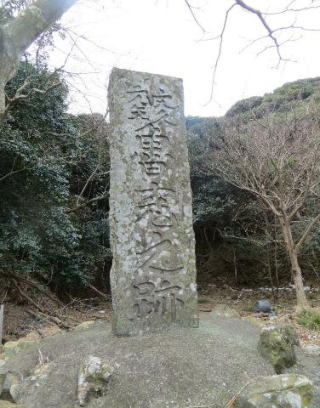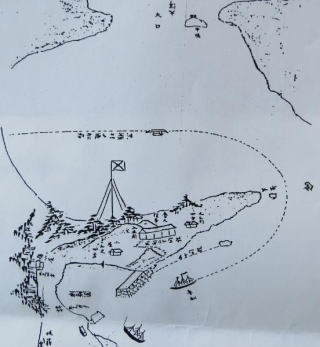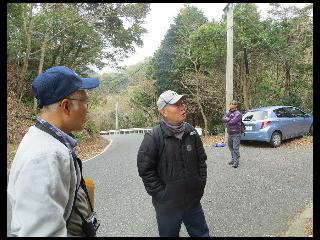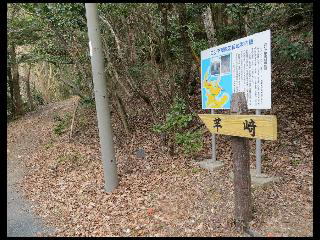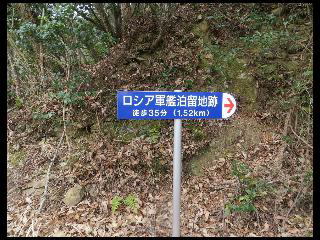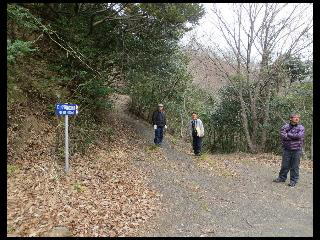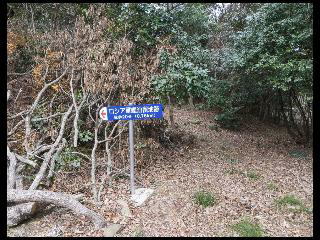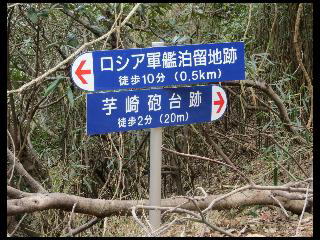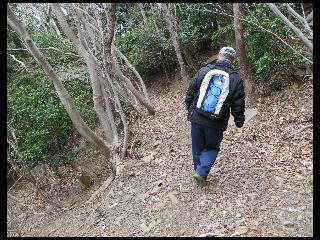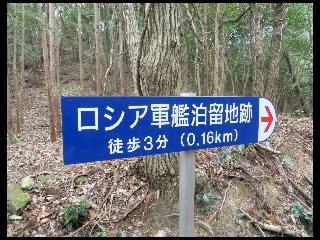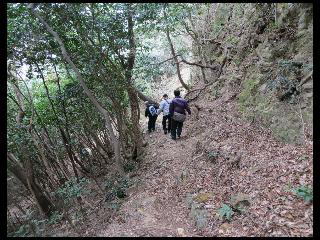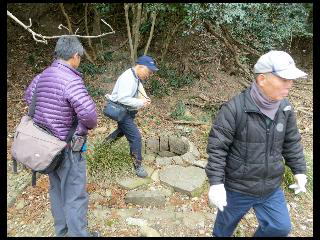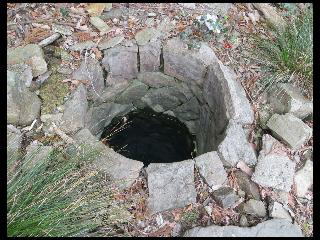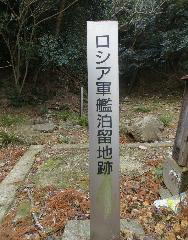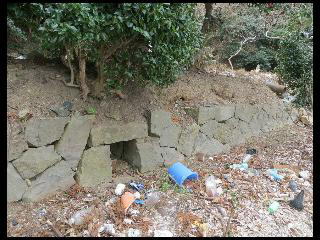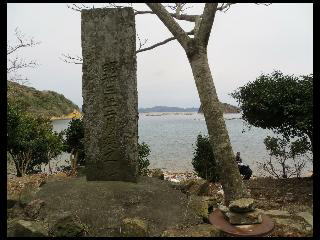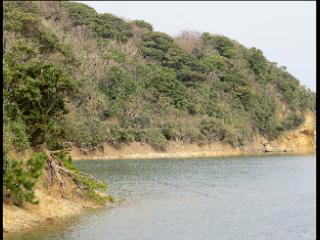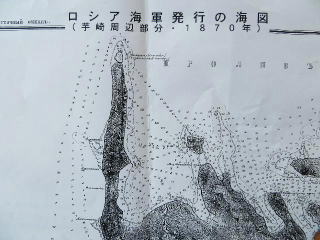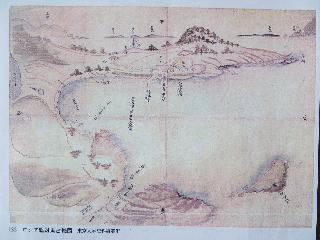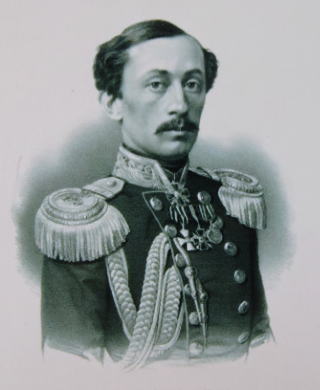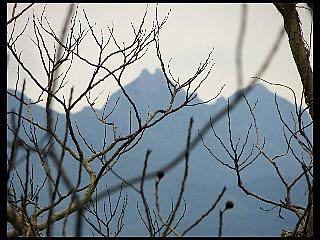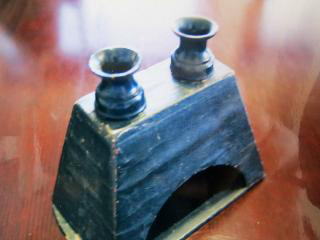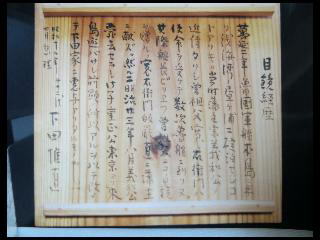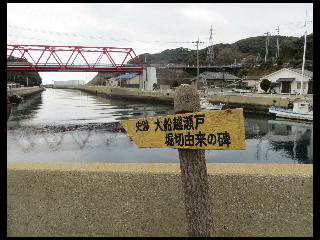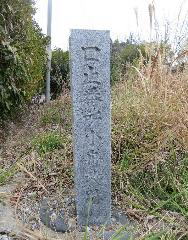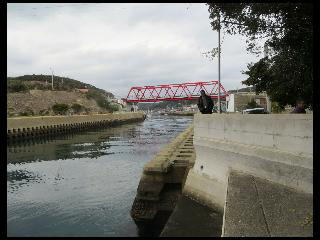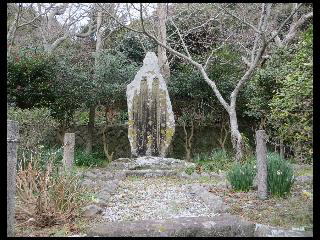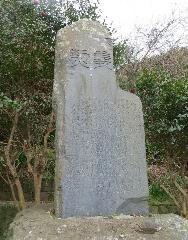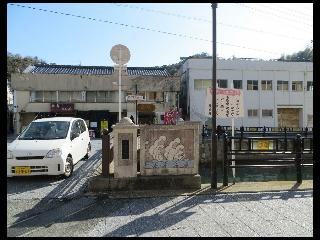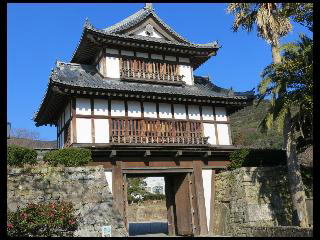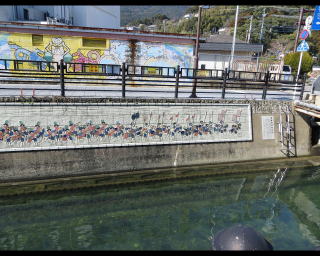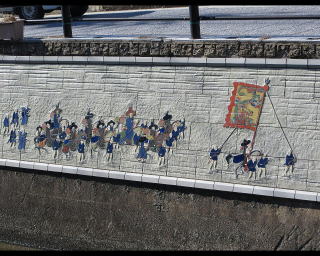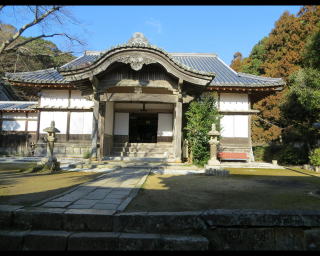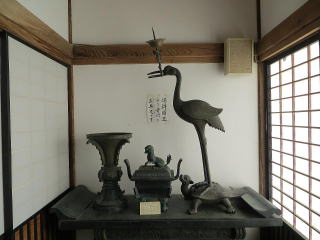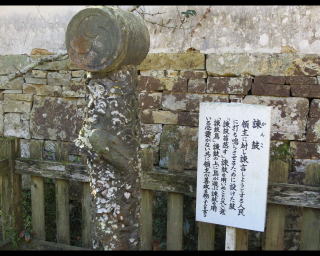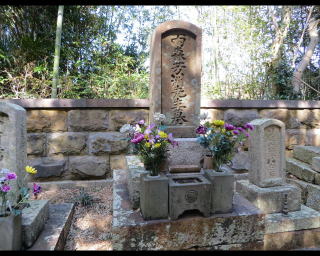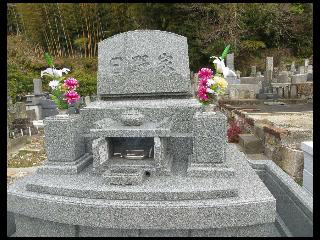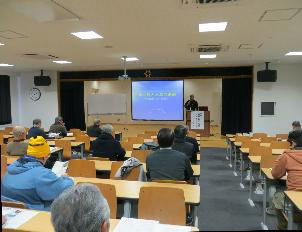通説を糺す
Redressing the myths |
対馬事件 発端と露艦退去の真相
The Origin of the Tsushima Incident and the Truth about the Departure of Russian Ships
- The myth that British ships were dispatched to evacuate the area is false.-
|
初期の対馬藩-幕府対応の経過 概略
参照:日野清三郎『幕末における対馬と英露』
A Brief Overview of the Initial Response of the Tsushima Clan and the Shogunate
See: “Tsushima in the End of the Edo Period and Britain and Russia” by
Seizaburo Hino
【江戸で】
・対馬から報告1二月六日付→(約3週間かかる)→江戸藩邸→幕府に
*幕府への最初の報告到着は四月二日説があり、以下も含めて要検討。
<In Edo>
Report No. 1 from Tsushima: Dated February 6 → (takes about 3 weeks) → Tsushima Domain residence in Edo → to the Shogunate
(Note) There is a theory that the first report to the Shogunate arrived
on April 2, and it should be examined in conjunction with the following.
【対馬からの報告つづく】
・二月十九日付 報告2…「測量、修理小屋、食料要求-牛は断る」→
・三月二日付 報告3…「修理場所、人夫、野菜などの要求」→
・三月十日付藩主の内願書…「御指揮方願い奉候」→四月初めに幕府へ
・三月十三日付 報告4・・・「伐木、ボートとイザコザ 大工要求、木材買い上」
・三月二十八日付 報告5…「井戸を掘る、畑作る、木材・板・釘を買上、露艦ナエセニクも来航(提督リハチョフが乗艦していた)」
以後も報告がつづくが略す
<Reports from Tsushima continues>
Report No. 2 dated February 19: "The Russians demanded that they survey, have a repair shed, and food, but we refused to give them cattle.
Report 3, dated March 2: "The Russians demanded repair locations, manpower, vegetables, etc."
→
A written request from the lord of Tsushima, dated March 10: "I beg you to take command." → submitted to the Shogunate at
the beginning of April.
Report 4, dated March 13: "Trees were cut down by the Russians for lumber and there was trouble with the Russians on the boat; the Russians demanded carpenters and bought up the lumber."
Report 5, dated March 28: "The Russians dug wells and built fields. They also bought lumber,
planks, and nails. The Russian ship Naesenik also arrived, with Admiral
Ivan Likhachev aboard.).
More reports followed, but they are abbreviated here.
【幕府の対応】
*日魯条約で外国人の窓口は長崎としているから、当初はポサドニク号を長崎へ移動させるよう対馬藩の対応に委ねていたが、対馬藩主からの内願書で、藩だけでは対応しきれない状況であることを理解した。
・四月五日、①外国奉行小栗豊後守忠順、目付溝口八十五郎に【見回り】を命じた *鎮撫役ではなく「状況視察」=藩主に代わる交渉の代表権限はない
②露領事ゴシュケビチに対馬の露艦を退去させるよう、箱館奉行村垣淡路守範正に抗議の申し入れを指示
【対馬で小栗等は】
・小栗等 五月七日 咸臨丸で対馬着→芋崎浦でビリレフと三回面談交渉→五月二十日対馬発→江戸へ帰着 *小栗は露艦退去に失敗、と言われてきた
<The Shogunate's response>
*Because the Treaty of Japan and Russia stipulated Nagasaki as the window
for foreigners, the Shogunate initially left it to the Tsushima Clan to
move the Posadnik to Nagasaki, but after receiving an unofficial letter
from the lord of the Tsushima Clan, they understood that the situation
could not be handled by the clan alone.
- On April 5, the shogunate did the following:
(1) They ordered Bungonokami Tadamasa Oguri, a foreign magistrate, and Yasogoro Mizoguchi, a censor, to make a patrol of the situation. (Note: * The role
was not to act as a pacifist, but to "inspect the situation".
In other words, there was no representative authority to negotiate on behalf
of the clan leader.)
(2) They instructed Hakodate Magistrate Muragaki Awajimori Norimasa to lodge a protest with
the Russian Consul Goshkevich to have the Russian ships in Tsushima evacuated.
Actions of Oguri and others in Tsushima Oguri and his crew arrived at Tsushima
on May 7 aboard the Kanrin Maru. They had three meetings with Birilev at
Imozakiura, and left Tsushima for Edo on May 20.
(Note) It has been said that Oguri failed to evacuate the Russian ship.
|
小栗忠順の交渉経過
・ 日五月七日対馬に到着。宿所となった港近くの藩士亀谷行蔵方へ、藩主宗義和が出向いて表敬訪問。
・ 日五月十日、十四日、十八日、三回にわたりポサドニク艦長ビリレフと会見し退去を要求したが、のらりくらりの返事で退去を同意することはなかった。
・ 日五月二十日、小栗忠順、溝口八十五郎は対馬を離れ江戸へと帰る。
明治以後の史家は「小栗上野介は成果を上げることなく対馬を離れた」とし、通説となっている。
小栗の考えは、艦長ビリレフはロシア海軍上層部から命じられて行動している。軍隊組織の末端にすぎない艦長ビリレフとこのまま交渉しても要求通りに退去するはずがない。江戸へ戻って幕府がロシアのハイレベルと交渉して退去命令を出させることが必要との判断であろう。
そして、小栗は今後について次のように考えたらしい。
①外交交渉を通じて、ロシアのもっと上層部に抗議と退去要求をすること。
②対馬は今後もこういったトラブルの場所となりやすいから、宗家の対馬藩には九州の別の領地を与えて対馬を幕府の直轄地とし、必要なら開港場として外国船に寄港・交易を認めれば、他の外国との兼ね合いからロシア一国の勝手な行動はできなくなる。
③小栗が対馬への派遣を命じられた四月六日以前、対馬藩は早くから九州の他の土地への領地替えを内々に希望していて、露艦滞泊を契機に三月二十七日に江戸の対馬藩邸で決議している。
しかし時の老中安藤信正はこの提案を受入れず英公使パークスのイギリス軍艦を派遣する申し出に乗って、露艦の退去を図ろうとした。小栗忠順はそのやり方は「前門の虎を追い出して、後門に狼を招くようなもの」と反対し、外国奉行を辞任した。
結果は…英艦リンドーブのホープ中将が出向いて退去を勧告しても、やはりビリレフは退去しない。もし英艦が来たからといって戦いもしないうちに劇画のように睨み合っただけでコソコソ退去したら、ビリレフはロシア海軍によって命令違反・任務放棄で軍法会議にかけられるだろう。まして勝海舟の英公使~露公使への働きかけのおかげなどと、英艦派遣とは全く噛み合わない話(『氷川清話』後述)も、いまだにまかり通っている。
結論を言っておけば、
1、箱館奉行村垣淡路守範正から→箱館領事ゴシケヴィチに対して、日魯修好通商条約に反する対馬滞留は不法である、という幕府の外交ルートからの抗議と退去要求が効いている。
2,はじめ外務大臣ゴルチャコフから「対馬への滞泊と基地租借要求は、外交は関係なく海軍だけの単独行動」を伝えられていたから、箱館領事ゴシケヴィチも「対馬滞泊は知らなかった」ととぼけていたが、幕府の退去要求と江戸の外国外交団が問題行動としていることを伝えられてしかたなく腰を上げ、提督リハチョフあてに退去させたほうがいいという勧告を送っている。
Progress of Tadamasa Oguri's Negotiations
・ Oguri arrived in Tsushima on (JC) May 7 and went to the house of Kozo Kameya, a feudal lord near the port where he stayed. Yoshikazu Mune, the lord of the clan, paid a courtesy visit to the house.
・ On (JC) May 10, 14, and 18 of 1861, Oguri met three times with the captain of the Posadnik, Birilev, and demanded that the ship leave, but Birilev replied lazily and did not agree to leave.
・ On (JC) May 20, Tadamasa Oguri and Yasogoro Mizoguchi left Tsushima and returned to Edo.
Historians since the Meiji era have stated that "(Kozukenosuke) Tadamasa Oguri left Tsushima without achieving any success.
However, Oguri must have thought, "Captain Birilev was acting on orders from the Russian Navy's upper echelons. Even if we continue to negotiate with Captain Birilev, who is only the end of the military organization, there is no way the ship will leave as requested. We need to go back to Edo and ask the shogunate to negotiate with the Russian high level and order them to leave." Then, Oguri thought about the future as follows:
(1) The Shogunate should protest and demand evacuation from the more senior levels of Russia through diplomatic negotiations.
(2) Tsushima is likely to be a place for this kind of trouble in the future. Therefore, the Shogunate should give another territory in Kyushu to the Tsushima clan and place Tsushima under the direct control of the Shogunate. Then, if necessary, it could be used as a port of entry to allow foreign ships to call at the port and trade with it, so that Russia alone would not be able to act on its own due to the conflict with other foreign countries.
(3) Before April 6, when Oguri was ordered to Tsushima, the Tsushima clan had been privately hoping for a change of territory to another place in Kyushu, and took the opportunity of the stay of the Russian ship to pass a resolution at the clan residence on March 27.
However, this proposal was not accepted by Nobumasa Ando,a shogunate council member, and Ando tried to get the Russian ship to leave by taking up the British Minister Parks' offer to send British warships. Tadamasa Oguri opposed the idea, saying that it would be like driving out a tiger from the front gate and inviting a wolf to come in from the back gate, and he resigned as foreign magistrate.
As a result... Lieutenant Commander Hope of the British ship Lindove went
to the Russian ship and advised Birilev to leave, but the ships still would
not leave. If, when the British ships arrived, the Russian warship sneaked
away without a fight, after only a theatrical standoff, Birilev would be
court-martialed by the Russian Navy for violation of orders and dereliction
of duty. In addition, there are still many stories that do not fit in with
the dispatch of British ships, such as Kaishu Katsu's encouragement to
the British and Russian legations.
Let me conclude by saying that:
1. The Shogunate's protest to the Hakodate consul, Gosikevich, by the Hakodate magistrate, Awajinokami Norimasa Muragaki, that their stay in Tsushima was illegal and in violation of the Treaty of Amity and Commerce between Japan and Russia, and the shogunate's demand that they leave, was effective.
2. At first, Foreign Minister Gorchakov had told Goshkevich that the stay
in Tsushima and the request for the lease of the base were not related
to diplomacy, but were the sole actions of the navy, so Goshkevich pretended
to be unaware of the stay in Tsushima. However, when he was informed of
the Shogunate's request for evacuation and the fact that the foreign diplomatic
corps in Edo considered it a problematic action, he had no choice but to
sit up and send a recommendation to Admiral Likhachev that it would be
better to evacuate the Russian ships from Tsushima.
|
そもそもの発端は英艦の対馬不法侵航
It all started with British ships trespassing on Tsushima.
|
◆イギリスの不法行為…1858安政五年の日英条約・日露条約ともに 「外国船は緊急の気象避難以外には定められた港以外に寄港してはならない」 ことが定められている。
・1859安政六年四月にイギリス軍艦アクチオン号、十一月にふたたびイギリス艦アクチオン号・ドーフ号
と二度にわたって対馬で不法に測量・上陸して白嶽に登るなどした。
(ちなみに、小栗忠順はこの年九月に遣米使節(目付)を命じられた。その前後の四月と十一月である。翌安政七年(三月から万延元年1860)一月に渡米~世界一周で~九月に帰国している)
◆ロシアの焦り
この英艦の情報を得てロシアは焦った
・箱館のロシア領事ゴシケヴィチは、英国は中国の次に対馬を抑えてロシアを封じ込めようとしているらしい、とロシア外務省に報告した。
・北京の露国特命公使イグナチェフ(元陸軍将校)も、英が中国の次に対馬を狙っているらしい、と露国東洋艦隊イワン・リハチョフ提督に伝えた。リハチョフは海軍大臣コンスタンチン・ニコライエヴィチ大公(皇帝の弟)に報告した。
◆ British Torts... Both the Anglo-Japanese Treaty and the Russo-Japanese Treaty both of
1858 stipulate that "foreign ships shall not call at ports other than those designated except for emergency weather evacuation."
・ In April 1859 (Ansei 6), the British warship Acteon, and in November 1859, the British warships Acteon and Dorf illegally surveyed and the crew landed in Tsushima and climbed Mt. Shiratake.
(Incidentally, Tadamasa Oguri was ordered to be an envoy to the United States in September of that year and the above incidents occurred in April and November of the same year. The following year of 1860 or Ansei 7 (and Man'en 1 from March), he went to the U.S. and traveled around the world, returning to Japan in September.)
The Russians became impatient when they received information about these British ships' movements.
・ Gosikevich, the Russian consul in Hakodate, reported to the Russian Foreign Ministry that the British were trying to contain Russia by holding Tsushima next to China.
・ The Russian envoy in Beijing, Ignatiev (a former army officer), also
informed Admiral Ivan Likhachev of the Russian Oriental Fleet that the
British were aiming at Tsushima next to China. Likhachev reported this
to Grand Duke Konstantin Nikolayevich, Minister of the Navy (brother of
the Czar).
|
◆ロシアの不法行為
◆ロシア海軍が「私的契約で土地を租借」する方針
*露国外務省は無関係の立場を取った
◆ Russia's Illegal Acts
◆ Russian Navy's Policy of Leasing Land under Private Contract
* The Russian Foreign Ministry has taken the position that it is not involved.
|
1860万延元年日六月二十八日露7月22日、このリハチョフ報告を皇帝の前で披露した海軍大臣コンスタンチンは、対馬に露艦を派遣して居座らせ、既成事実の積み上げで対馬の大名から基地を租借することを提案した。
ロシア皇帝アレクサンドルⅡ世は日本との外交関係を損なうことを懸念した。
しかし海軍大臣コンスタンチンは
「日本では幕府とは関係なく土地の大名の了解を得られれば外交交渉の形式を取らずに租借が可能」
として皇帝の了解を取り付け、対馬への進航を提督リハチョフに指示した。
海軍大臣コンスタンチンにしてみれば藩ごとに自治権を与えている幕藩体制の弱点をついた案、のはずだった。
On (JC) June 28 (Man'en 1) or (RC) July 22, 1860, Konstantin, the Minister of the Navy of Russia, who presented this Likhachev report in front of the Russian Emperor, proposed to dispatch Russian ships to Tsushima to stay there and to lease the base from the feudal lord of Tsushima by accumulating accomplished facts.
Emperor Alexander II of Russia was concerned about damaging diplomatic relations with Japan.
However, Konstantin said,
"In Japan, it is possible to lease land without any form of diplomatic negotiation as long as the feudal lords of the land agree to it, regardless of the Shogunate."
Then, with the Czar's approval, Konstantin instructed Admiral Likhachev to proceed to Tsushima.
In the eyes of Konstantin, this was an idea that exploited the weakness
of the Shogunate's system of granting autonomy to each clan.
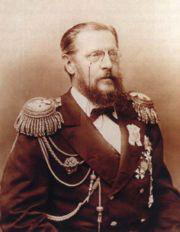
海軍大臣コンスタンチンは皇帝の弟
Konstantin Nikolayevich, the Minister of the Navy, a brother of the Czar
|
◆「大名との取引で・・・外交の形式をとらず…」
(海軍大臣コンスタンチンから提督リハチョフ宛 指令書)
「…日本帝国の封建制度は、君が中央政府と関係することなしに現地の大名、あるいは領主との友好的な取引だけで済ませることができるという意味で今回の問題の助けとなるかも知れません。君が執り行う交渉はすべて、決して外交の形式を取ってはならず、初めは現地政権とわが国艦隊との個別取引の形で行われなければなりません。・・・」(万延元年(1860)年六月二十一日露7月26日→12月半ばにリハチョフ受領)
(伊藤一哉『ロシア人の見た幕末日本』吉川弘文館2009年)
◆ “In our dealings with the feudal lords... we do not take the form of diplomacy...”
(Directive from Konstantin, the Minister of the Navy, to Admiral Likhachev)
"...The feudal system of the Japanese Empire may help in this matter,
in that you may only make friendly deals with local feudal lords or lords
without having to deal with the central government. Any negotiations you
conduct must never take the form of diplomacy, but must be conducted initially
as individual deals between the local government and our fleet. ..."
(JC) June 21, 1860, (RC) July 26 → Received by Likhachev in mid-December
("Russians' View of Japan at the End of the Edo Period," by Kazuya
Ito, Yoshikawa Kobunkan, 2009) |
露国外務省は「高見の見物」
Russia's Foreign Ministry was "watching from a high vantage point."
|
◆なぜ海軍大臣コンスタンチンは「決して外交の形式を取ってはならず」と念を押したか
外務大臣ゴルチャコフは皇帝臨席の閣議で、反対したかった。
日本の港へは日露修好通商条約で
「決められた以外の港は難破など緊急避難の他に入港を認められていない」
から、こういう条約違反の既成事実を作り上げ土地の租借を図るような粗雑なやり方は
1 ダイミョウ(地方領主)だけでは処理できず、日本政府(幕府)とのトラブルになる…これまで積み上げた信義に基づく外交がぶち壊しになる
2 日本駐在の欧米外交団から干渉が入ることが、十分に考えられる
のでとてもうまくゆかないだろうから、反対したかった。
しかし、海軍大臣コンスタンチンは海軍のトップであるだけでなく、皇帝アレクサンドルⅡ世の弟であることからロシア政界に強い発言力を持っている。外務大臣ゴルチャコフは正面からの反対はしにくいので、外交抜きで海軍だけでやってくれと、外務省に責任が及ぶことを上手にかわした。
この意見を受けて、海軍大臣コンスタンチンは外交抜きでやる、外交が口出ししないほうがやりやすい、海軍だけでやってみせると単純に喜んでいることが背景にある。
◆ Why did Navy Minister Konstantin remind Likhachev that "we must never take the form of diplomacy"?
Foreign Minister Gorchakov wanted to oppose it at the Cabinet meeting in the presence of the Czar. His reasons were as follows:
According to the Treaty of Amity and Commerce between Japan and Russia,
"No one is allowed to enter Japanese ports except in case of shipwreck or
emergency evacuation."
Therefore, this kind of shoddy way of creating a accomplished fact in violation of the treaty and attempting to lease the land is not acceptable. Besides,
1. Daimyo (local lords) cannot handle it alone, and it will cause trouble with the Japanese government (Shogunate)... It will destroy the diplomacy based on trust that has been built up so far.
2. It is quite possible that the Western diplomatic corps stationed in Japan will interfere.
However, the Minister of the Navy, Konstantin, was not only the head of the Navy, but also the younger brother of Tsar Alexander II, and thus had a strong voice in Russian politics. It was difficult for Foreign Minister Gorchakov to oppose the plan head-on, so he skillfully dodged the responsibility that would fall on the Ministry of Foreign Affairs by asking that the Navy do it alone, without diplomacy.
In response to this opinion, the Navy Minister, Konstantin, simply said that he would do it without diplomacy, that it would be easier to do it without diplomacy interfering, and that he would do it by the Navy alone. This was at the background of his reminding Likhachev that "we must never take the form of diplomacy."
|
◆「滞泊の既成事実を積み上げ・・・対馬藩との海軍の私的契約で基地を設立・・・外交は必要ない・・・」
( 海軍大臣コンスタンチンからリハチョフ提督宛書簡)
「外務大臣ゴルチャコフは、……この問題を外交問題としてではなく、純粋に海軍の問題にする、それ故に問題をあなたに一任すると話を結びました。私はもちろん、この展望を非常に喜び、ベターだとすぐに同意しました。それ故私はあなたに手紙を書きます。
この問題は外交的条約ではなく、海軍の私的契約という性格を持たなければなりません。問題は、我々がこの島に海軍の基地、自由港を設立できるかどうかということであります。そのためには、どのような外交も必要ではありません。
これを、あなた自身より上手にやれる人はおりません。もし、あなたが、対馬当局との地方的交渉に限定できるか、あるいはなんの交渉もなしに既成事実を積み上げる方がよいでしょう……」(岡山大学保田孝一編著『文久元年の対露外交とシーボルト』)
◆ "Building on accomplished facts of the stay ... establishing a base under a private naval contract with the Tsushima clan ... no need for diplomacy ..."
(Letter from Navy Minister Konstantin to Admiral Likhachev)
"Foreign Minister Gorchakov concluded ...... that the issue should not be a diplomatic one, but a purely naval one, and that therefore the matter should be left to you. I, of course, was very pleased with this prospect and immediately agreed that it was better. Therefore, I am writing to you.
This matter must take on the character of a private naval contract, not
a diplomatic treaty. The question is whether we can establish a naval base,
a free port, on this island. No amount of diplomacy is necessary to achieve this.
There is no one who can do this better than yourself. If you can limit yourself to local negotiations with the Tsushima authorities, it would be better to build up the accomplished facts without any negotiations. ......"
(“Diplomacy with Russia in the First Year of Bunkyu or 1961 and Siebold,”
edited by Koichi Yasuda, Okayama University)
|
・外務大臣ゴルチャコフの懸念―露日修好通商条約を結んだ国日本で、海軍の考える居座りの既成事実から租借に持ち込むような粗雑なやり方は必ず幕府とのトラブルになるし、英米仏などの外交団も黙っていない。かと言って皇帝の前で皇帝の弟の海軍大臣コンスタンチン大公には正面から反対はしにくいから、外務省は関係なしに海軍だけでやってくれ、という立場を確認した。「高見の見物で、お手並み拝見」ということ。
・海軍大臣コンスタンチンは―グズグズいう外交官が口出ししないほうがやりやすい。日本の地方領主ダイミョウなどおだてと脅しとすかしで、既成事実を積み上げればちょっとの土地くらいすぐに貸してくれるはず。…と、各藩の自治に任せる部分が多かった日本の封建制の弱点を突いたつもりだった。日本政府(幕府)の外交能力や、国民の民度を低く見て、そのやり方が通用する国とみていたフシがある。「これをあなた自身より上手にやれる人はおりません。」とリハチョフをおだて上げて実行を命じている。
・提督リハチョフの困惑― もう一度これまでの流れをまとめると
・露1859年5月21日に提督リハチョフは海軍大臣コンスタンチンに対馬を租借し基地建設することを提案
・同 5~6月に皇帝アレクサンドルⅡ世の前で海軍大臣コンスタンチンが軍艦の対馬派遣による滞泊と租借を提議。外務大臣ゴルチャコフは海軍だけでやってくれ、と外交はノータッチを主張。ー海軍大臣コンスタンチンは了解。
・同年露7月26日、海軍大臣コンスタンチンから「交渉はすべて、外交の形式をとらず、初めは現地政権とわが国艦隊との個別取引の形で行わなければなりません。」との指令書を受取った。
困惑
・まさか「外交抜き,=海軍だけで実行」という事態は想定外だった。果たして本当にうまくやれるか―
・うまく運ばなければ提督リハチョフにすべての責任がかぶせられるやり方、とリハチョフは受け止めたらしい。
このリハチョフのためらいが対馬進航を艦長ビリレフに指示しながら、リハチョフ自身の消極的な対応を生み出している。
たとえば・・・
・ Foreign Minister Gorchakov's concern: In Japan, the country that concluded the Russo-Japanese Treaty of Amity and Commerce, the Navy's idea of a shoddy approach to the lease based on accomplished facts of sitting on the land would surely cause trouble with the Shogunate, and the diplomatic corps of Britain, the United States, France, and other countries would not remain silent. On the other hand, it was difficult to oppose the emperor's brother, Grand Duke Konstantin, Minister of the Navy, head-on in front of the emperor. So he confirmed his position that the Ministry of Foreign Affairs should have nothing to do with it, and that the Navy should do it alone. In other words, he decided to take a "look on high and see what Konstantin can do."
・ Konstantin, the Minister of the Navy, said that it would be easier if
diplomats who complained didn't interfere. If they can build up a solid
foundation of credibility with the help of coaxing, threats, and shakedowns,
Japan's local lords, such as Daimyo, will soon lend them a little land.
He thought he was exploiting the weakness of Japan's feudal system, which
left much to the autonomy of each clan. It is likely that he underestimated
the diplomatic ability of the Japanese government (Shogunate) and the level
of the people and thought that his way of doing things was acceptable.
He ordered Likhachev to do it, flattering him saying,
"There is no one who can do this better than you yourself."
・ Admiral Likhachev's embarrassment--- The summary of the process is as follows:
* On (RC) May 21, 1859, Admiral Likhachev proposed to Navy Minister Konstantin to lease Tsushima and build a base there.
* In (RC) May and June of the same year, Konstantin, Minister of the Navy, proposed before Emperor Alexander II that warships be dispatched to Tsushima to stay and lease the land. Foreign Minister Gorchakov insisted that diplomacy should be left to the navy alone. Konstantin, the Minister of the Navy, agreed.
* On (RC) July 26 of the same year, Likhachev received a directive from Konstantin: "All negotiations must be conducted in the form of individual deals between the local administration and our fleet at first, not in the form of diplomacy. Then, Likhachev was puzzled.
* He had never imagined that they would have to do this without diplomacy, just the Navy. Can they really pull this off?
* Likhachev perhaps thought, if it didn't go well, he would be blamed for the whole thing. This hesitation on his part led to his own reluctant response while instructing Captain Birilev to proceed to Tsushima.
For example, ...
|
・提督リハチョフの消極的対応
ビクター・シュマギンの考察では
「リハチョフは、対馬作戦においてロシア海軍基地の建設が最も重要な任務であると考えていたようだが、あまり積極的に任務を果たそうと奮起した様子はない。」
「事件中に彼は二回しか対馬に来航しておらず、(露3月28~29日と露4月16~18日の計3泊5日の滞在)、来航時に行われた対馬役人とのロシア海軍基地の建設や賃借権などについての交渉にも参加しなかった。」
「作戦については露4月18日以降ビリリョフ海軍大佐に一任し、9月14日にビリリョフに撤退命令を出すまで、何も自ら関わりを持とうとしなかった。」
「時折対馬に他のロシア軍艦を派遣させたが、船長には具体的な命令を出していない。」
(ビクター・シュマギン「『リハチョフ航海日誌』から読み解く対馬事件」東京大学史料編纂所研究紀要 第25号 2015年3月)
と指摘している。
・ Admiral Likhachev's reluctant response
Viktor Shmagin pointed out the following:
"Likhachev seems to have considered the construction of a Russian naval base to be the most important task of the Tsushima campaign, but he did not seem to be very active in fulfilling it."
"He visited Tsushima only twice during the incident on (RC) March 28-29 and April 16-18 and did not participate in the negotiations with Tsushima officials on the construction of the Russian naval base and lease rights.
"After (RC) April 18, he entrusted the operation to Navy Colonel Birilev and took no further part in it until (RC) September 14, when he ordered Birilev to withdraw."
"He occasionally sent other Russian warships to Tsushima, but gave no specific orders to the captain."
(Viktor Shmagin, "The Tsushima Incident as Deciphered from the 'Lihachev Voyage Log,'" Journal of the University of Tokyo, Vol. 25, March 2015)
|
|
露海軍の独走で起きた対馬事件
命令: 海軍大臣コンスタンチン→東洋艦隊リハチョフ提督→露艦ポサドニク艦長ビリレフへ
The Tsushima Incident happened under the sole control of the Russian Navy Orders
Orders were sent: Konstantin, Minister of the Navy ⇒ Admiral Likhachev,
Oriental Fleet ⇒ Captain Birilev, Russian ship Posadnik |
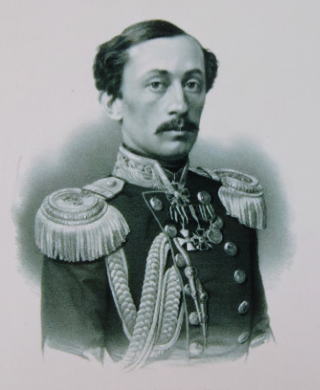
▲艦長ニコライ・ビリレフ(ビリョリョフ、ビリリョフとも)
Nikolai Alekseevich Birilev, Captain of the Russian ship Posadnik
「領事ゴシュケビッチを箱館に送ったらすぐに引き返して対馬へ行き、島の航路と資源などを調査すること。もし船の修理が必要なら、外洋から見られることのない湾の特性を活用しなさい」=人目につかないところで「修理を名目に拠点を築き、既成事実を積み上げる」 ことが指示された。
▲ Captain Nikolai Birilev
"As soon as you send Consul Goshkevich to Hakodate, turn around and go to Tsushima to survey the island's routes and resources. If you need to repair your ship, take advantage of the bay's unobstructed view from the open sea." The instructions were to "build up a base in the name of repair and build up the facts" in a secluded place.
|
◆提督リハチョフから
艦長ビリレフへの命令書 <極秘>
…領事ゴシケヴィチ氏を箱館に送り届けたら、時を失うことなく朝鮮海峡と対馬に行って下さい。…できるだけ早く上記の湾に到着し、そこにコルヴェット艦を停泊させ、この湾から始めて対馬全体の、さらには朝鮮海峡両岸の詳細な航路調査にすぐ取りかかって下さい。言うまでもないことですが、両側の航路の調査に限定するだけでなく、この辺境の状態と資源について必要な情報をすべて集めるように努力して下さい。仕事を急ぐ必要はないから、すべて詳細に仕事を進めるように注意して下さい。
コルベット艦の修理が必要なら、この美しく、外洋からまったく閉鎖されている湾に停泊していることを利 用して下さい。…以下略‥
(露1861年2月2日長崎にて・極秘・『文久元年の対露外交とシーボルト』保田孝一編著)
◆ Order from Admiral Likhachev to Captain Birilev <Top Secret>
... After sending Consul Goshkevich to Hakodate, go to the Korean Straits and Tsushima without losing time. ... Arrive at the above-mentioned bay as soon as possible, anchor the corvette there, and immediately begin a detailed survey of the shipping routes, starting from this bay, the whole of Tsushima, and both sides of the Korean Straits. Needless to say, don't just limit yourself to surveying the shipping lanes on both sides, but try to gather all the necessary information about the condition and resources of this frontier. There's no need to rush the job, so take care to work out all the details.
If you need to repair your corvette, take advantage of the fact that it is anchored in this beautiful bay, which is completely closed off from the open sea. ...(the following is omitted)....
(“Diplomacy with Russia in the First Year of Bunkyu or 1861 and Siebold,” edited by Koichi Yasuda, (RC) February 2, 1861 in Nagasaki, Japan, confidential)
|
「基地を築け」「既成事実で租借を迫れ」という直接的な表現を避けているのは、もし後で責任問題となった場合「現場が勝手にやったことで、そこまでは指示していない」と逃げるための伏線であろう。ヤクザの親分が「若いモノが勝手にやったこと…」、政治家が「秘書がやった…」というのと同じ言い逃れの論法とみていい。
"The avoidance of direct phrases such as "build a base" and "force the lease with pre-existing facts" is probably a foreshadowing so that, if the issue of responsibility arises later, the government can escape by saying, "It was done by the people at the site on their own, and I did not tell them to do it. It is the same way that Japanese yakuza bosses say, "It was done by a young man on his own," or politicians say, "It was done by a secretary."
対馬事件を理解するには
1 外務大臣ゴルチャコフはじめ魯国外務省の箱館領事ヨシフ・ゴシケヴィチも北京公使イグナチェフも、外務省関係者はみな傍観者
外務大臣ゴルチャコフは皇帝の前で、在北京公使イグナチェフ・箱館領事ゴシケヴィチを巻き込まないよう、海軍大臣コンスタンチンに釘を差している
(外務大臣ゴルチャコフは)「この問題を誰に任せてよいかはっきり判らない」と言い、「イグナチェフに任せることを欲しない」と 断固として言いました。この席で彼はイグナチェフを この問題から解放するように私に願い、「この問題を外交問題としてではなく、純粋に海軍の問題にする、それ故に問題をあなたに一任する」と話を結びました。私はもちろん、この展望を非常に喜び、ベターだとすぐに同意しました。
(海軍大臣コンスタンチンからリハチョフ提督宛書簡・岡山大学保田孝一編著『文久元年の対露外交とシーボルト』)
当然外務大臣ゴルチャコフは、対馬で露国海軍の問題が起きたら、一切関わりを持たないよう箱館領事ゴシケヴィチや在北京公使イグナチェフに指示を出していたと考えられる。
2 ロシア海軍が独断で行い、外務省は傍観していた
海軍大臣コンスタンチン→リハチョフ提督→ポサドニック艦長ビリレフ の海軍の独断による指示で起きた事件。
3 ポサドニック号艦長ビリレフは命令されて進航・滞泊していて、勝手に退去できない立場 …通説1「小栗は交渉に行き詰まって江戸へ戻った」は誤り
艦長ビリレフは個人の思いつきで対馬へ進航したわけではない。あくまで命令されてやってきた海軍組織の末端だから、露艦ポサドニックを退去させるにはこの命令ラインの上部から退去命令を出させなければならない。
小栗上野介が対馬に派遣されて2週間滞在・3回交渉しただけで江戸に戻ったことを非難するのは当たらない。日五月十四日露6月9日のビリレフとの第2回めの会談でビリレフは小栗にこう語っている。
◆小栗上野介と艦長ビリレフ 第2回会談で
ビリレフ「船の修理をしていたらちょうどそこへ(リハチョフ)提督から命令があって、修理滞泊のついでに海図を作成するように言ってきたのだ。それに英仏もこの地を狙っているから、我々がいる間は、両国も手を出すことはできないだろう」
小栗「そういう話なら、ロシア政府から直接わが政府に申し出るべきではないか」
ビリレフ「それはわかっているけれど、私からは答えられないから、詳しいことは提督か(箱館領事の)ゴシケビッチから話があると思うから、そっちから聞いてくれ」 (日野清三郎『幕末における対馬と英露』)
*ビリレフはロシア外務省が傍観の立場であることを知らされていないから領事ゴシケヴィチの名を出したと思われる。
艦長ビリレフは個人の思いつきで対馬へ来ているのではない。露国海軍という軍隊組織の末端で命令されてきているのだから、いくら抗議されても上部から撤収・退去命令がこない限りビリレフは動けない立場である。
小栗上野介はそのことを理解した。しかも外国奉行小栗上野介への派遣任務は「見回り」で、藩主を飛び越えての交渉権や幕府を代表しての決定権は与えられていない。もっとロシア外交関係とのハイレベルの外交交渉で退去させなくてはいけないと判断して江戸に戻った。
どこの国の軍艦もすべて上部からの命令で動いている。ビリレフ艦長も個人の思いつきで対馬に滞泊しているのではない。これまでの歴史家がこのことを考慮しないで小栗上野介は(現場だけの交渉で)退去させられなかったと論じているのが不思議なことである。
How to Understand the Tsushima Incident
1. Foreign Minister Gorchakov, Iosif Goshkevich, Consul of Hakodate at the Ministry of Foreign Affairs of the Russian Federation, Nikolai Pavlovich Ignatiev, Minister of Peking, and other officials of the Ministry of Foreign Affairs were all bystanders.
Foreign Minister Gorchakov nailed Navy Minister Konstantin in front of the Czar not to involve Ignatievich, the Minister of Foreign Affairs in Beijing, and Gosikevich, the consul of Hakodate.
"(Foreign Minister Gorchakov) said that he did not know exactly who to entrust
this matter to, and he firmly stated that he did not want Ignatiev to be
entrusted with it. At this point he asked me to release Ignatiev from the
problem and concluded that the problem would not be a diplomatic one, but
purely a naval one, and that he would therefore leave the matter to me.
I, of course, was very pleased with this prospect and immediately agreed
that it was a good idea."
(Letter from Konstantin, Minister of the Navy to Admiral Likhachev, in “Diplomacy with Russia in the First Year of Bunkyu or 1861 and Siebold,” edited by Koichi Yasuda, Okayama University)
Naturally, Foreign Minister Gorchakov is thought to have instructed Hakodate Consul Goshkevich and Minister Ignatiev in Beijing not to get involved in any Russian naval problems in Tsushima.
2. The Russian Navy acted on its own, and the Foreign Ministry stood by
and watched.
The incident occurred at the sole discretion of the Navy: Minister of the Navy Konstantin → Admiral Likhachev → Captain of the Posadnick, Bililev.
3. The Posadnik's captain, Birilev, was in a position where he could not leave the ship at will, as he was sailing and docking on orders. <Myth 1> "Oguri returned to Edo after the negotiations stalled" is incorrect.
Captain Birilev was not sailing to Tsushima on his own initiative. He was only the end of a naval organization that had been ordered to come, so in order to get the Russian ship Posadnik out of Tsushima, he had to get an order from the top of this order line to leave.
It is not correct to blame Kozukenosuke Oguri for returning to Edo after being dispatched to Tsushima, where he stayed for two weeks and negotiated three times. The conversation of Birilev and Oguri in the second meeting on (JC) May 14 or (RC) June 9, was that:
Birilev: "I was repairing the ship when I received an order from Admiral (Likhachev) to make a chart while I was there. Besides, Britain and France are also targeting this area, so both countries won't be able to touch us while we're here."
Oguri: "If that's the case, shouldn't the Russian government make a direct request to our government?"
Birilev: "I know that, but I can't give you an answer. I'm sure the Admiral or (Hakodate consul) Goshkevich will tell you more, so please ask them.
("Tsushima in the End of the Edo Period and Britain and Russia" by Seizaburo Hino).
Captain Birilev did not come to Tsushima on his own initiative.
No matter how much he was protested, Birilev was in a position where he could not move unless he received an order from the top to withdraw.
Kozukenosuke Oguri understood this. Moreover, the mission of Kozukenosuke Oguri, the foreign magistrate, was "patrol," and he was not given the authority to negotiate beyond the feudal lord or to make decisions on behalf of the shogunate. He returned to Edo after deciding that more high-level negotiations with Russian diplomats would be necessary to bring about the evacuation.
The myth that "Kozukenosuke Oguri could not solve the problem and returned to Edo" is wrong.
All warships of any country operate under orders from above. Captain Birilev did not stay in Tsushima on a whim. It is curious that historians so far have failed to take this into account, arguing that the ship could not be evacuated (only through on-the-spot negotiations).
| この頃、芋崎浦には、国旗掲揚台にロシア国旗が掲揚され、ロシア式蒸し風呂、台所、鍛冶場、納屋、診療所、波止場、野菜畑、が作られ、あるいは計画された。 |
| At this time in Imozakiura, the Russian flag was flown on the flag-hoisting platform, and Russian-style steam baths, kitchens, forges, barns, clinics, docks, and vegetable fields were built or planned. |
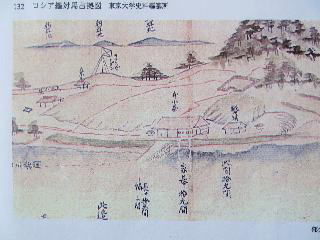
▲ロシア艦 対馬占拠図 東京大学史料編纂所蔵
芋崎は図の右に細く長く山芋のように伸びている。
Russian ship occupying Tsushima Island, Tokyo University Archives
|
通説2「英艦が行ったから露艦が退出した」・・・は誤り
<Myth 2> The myth that the Russian ship Posadnick "left the
area
because the British ship went there" is false. |
従来「英艦が派遣されて露艦ポサドニックを退去させた」とする説が、あたかも軍艦どうしのにらみ合いがあって露艦がスゴスゴ引き下がった劇画のようなイメージで語られてきた。
しかし上記のように、もし艦長ビリレフが提督リハチョフからの命令なしに退去した場合、間違いなく任務放棄・命令違反を問われ軍法会議にかけられることになるだろう。
実際はどうだったのか、露艦退去の前後に何があったのかを下の「対馬事件後半の経過」表でみると―
・箱館奉行村垣範正からたびたび抗議を受けた在箱館領事ゴシケヴィチから幕府の抗議と江戸における欧米外交団の不評と反発を伝えられ、提督リハチョフが撤退を決意したのは六月末。つまり、英公使オールコックらと老中酒井忠毗ただますの英艦派遣の相談以前に露艦の退去を決定している。
・英艦リンドーブのホープ中将が対馬に着き、ビリレフに退去を勧告したのは1861文久元年日七月二十三日(露8月16日)。
しかし、ビリレフは退去せず、
・3日後の日二十六日に提督リハチョフからの退去指令が対馬の艦長ビリレフに届いた(この3日の遅れは派遣する船の都合であろう。船は故障の修理・燃料・水・食料の積み込み・上陸している水夫の呼び戻しができて初めて出港できる)。ビリレフはそれでもすぐに退去せず
・実際に 露艦ポサドニックが対馬を退去したのはホープの勧告の23日後(日八月十五日露9月7日) である。
これでは「英艦が行ったので露艦が退去した」とはいえない。
In the past, the theory that "British ships were dispatched to evacuate the Russian ship Posadnick" has been described as if it were a dramatic image of a standoff between warships and the Russian ship backing down.
However, as mentioned above, if Captain Birilev had left without orders from Admiral Likhachev, he would have been court-martialed for abandoning his duty and violating orders.
What actually happened before and after the departure of the Russian ship is shown in the table below, "The Second Half of the Tsushima Incident."
・ It was at the end of June that Admiral Likhachev made up his mind to withdraw from Tsushima after he was informed by the consul in Hakodate, Gosikevich, who had received frequent protests from the Hakodate magistrate, Norimasa Muragaki, about the protests of the Shogunate and the unpopularity and opposition of the Western diplomatic corps in Edo. In other words, the decision to evacuate the Russian ships was made before the British
Minister Allcock and the shogunate council member Tadamasu Sakai discussed
the dispatch of the British ships.
・ It was on (JC) July 23 or (RC) August 16, 1861 (or Bunkyu 1) that Lieutenant Commander Hope of the British ship Lyndhoven arrived at Tsushima and advised the ship to leave. However, Birilev did not leave.
・ Three days later, on (JC) the 26th of the same month, Admiral Likhachev sent an order to the captain at Tsushima to leave, but he did not do so immediately.
・ The Russian ship Posadnick actually left Tsushima 23 days after Hope's recommendation on (JC) August 15 or (RC) September 7, 1861.
If that's the case, we cannot say "the British ships went there and the Russians left."
|
日 和暦
Japanese Calender |
洋暦
Western Calender |
露暦
Russian Calender |
対馬事件の後半の経過 事 項
The Second Half of the Tsushima Incident |
四月十三日
April 13 |
5月22日
May 22 |
5/10
May 10 |
【江戸】幕府は外国奉行小栗忠順に対馬での「見廻り」を命令/箱館奉行村垣淡路守範正に領事ゴシュケビチに抗議と退去申入れを指示 |
[In Edo] The Shogunate ordered Foreign Magistrate Tadamasa Oguri to "patrol"
Tsushima and instructed Hakodate Magistrate Awajinokami Norimasa Muragaki
to protest to the Russian consul Goshkevich and request him the evacuation
of Russian warships from Tsushima.
|
四月十八日
April 18 |
5月27日 May 27 |
5/15
May 15 |
・小栗は四月十八日江戸発→中山道→五月五日下関→→五月七日対馬着、十日・十四日・十八日にビリレフと会談し、二十日対馬出航→江戸へ戻る
|
Oguri departed Edo on April 18 → Nakasendo → Shimonoseki on May 5 → arrived
in Tsushima on May 7, met with Birilev on May 10, 14, and 18, departed
Tsushima on May 20 → returned to Edo
|
六月十日
June 10 |
7月17日July 17 |
7/5
July 5 |
【箱館で】箱館奉行村垣範正が露国領事ゴシケヴィチに露艦の対馬退去を要求。第一回。ゴシケヴィチは「そのようなことは知らなかったが、退去に同意し、ポシェット港あるいはヲリガ港滞在の提督リハチョフと対馬の艦長ビリレフに伝える」と約束 |
[At Hakodate] Hakodate Magistrate Norimasa Muragaki requested Russian Consul
Goshkevich to evacuate the Russian ship from Tsushima in their first meeting.
Goshkevich promised "I was not aware of any such thing, but I agree
to leave, and will inform Admiral Likhachev and Captain Birilev at Tsushima,
who are staying in Posyet Port or Olga Port."
|
七月三日
July 3 |
8月8日
August 8 |
7/27
July 27 |
【箱館で】 箱館奉行村垣範正、再び領事ゴシュケビッチに露艦退去を要求。第二回。 |
[At Hakodate] Hakodate Magistrate Norimasa Muragaki again asked Consul
Goshkevich to remove the Russian ships from Tsushima for the second time.
|
七月九日
十日
July 9 and 10 |
8月
14日15日
August 14 and 15 |
8/2、8/3
August 2 and 3 |
【江戸で】 英国公使ラザフォード・オールコックと東インド極東艦隊司令官ホープ提督、ロビンソン総督、オリファント書記官等が、外国掛老中安藤信行(信正)・若年寄酒井忠毗ら幕閣に英艦の対馬派遣を提案、了解を得る。*この場に勝海舟はいない |
[In Edo] British Minister Rutherford Allcock, Admiral Hope, Commander of the Far East Fleet, Governor Robinson, Secretary Oliphant and others proposed to the Shogunate members, including Foreign Minister Nobuyuki Ando and Young Master Tadamasu Sakai, to dispatch a British ship to Tsushima and obtained their approval. Kaishu Katsu was not present here.
|
七月十二日
July 12 |
8月17日
August 17 |
8/5
August 5 |
【箱館】 リハチョフから箱館領事ゴシケヴィチに「退去に同意し、(連絡の)露艦オブリヤークを対馬に差し向けた」と返信が届く。
|
| [At Hakodate] A reply arrived from Likhachev to Hakodate consul Goshkevich: "I agree to leave and have sent the (liaison) Russian ship Obryak to Tsushima." |
七月二十三日
July 23 |
8月28日
August 28 |
8/16
August 16 |
【対馬】英艦リンドーブのホープ中将が対馬に到着。ビリレフに会い、5ヶ国条約を盾にとって退去を勧告。
*しかし、ビリレフは退去しない
*ホープはそのあとオリガ港へ行き、八月一日(西 9月5日)提督リハチョフ宛に退去勧告の手紙を残す。
|
[At Tsushima] Lieutenant Commander Hope of the British ship Lyndhoven
arrived in Tsushima and met with Birilev and advised him to leave under
the shield of the five-nation treaty.
* However, Birilev did not leave.
* Hope then went to the port of Olga and left a letter to Admiral Likhachev
on (JC) August 1 or (WC) September 5, advising him to have the ship leave.
|
七月二十六日
July 26 |
8月31日
August 31 |
8/19
August 19
|
【対馬】露艦オブリチニックが対馬着。リハチョフ提督とゴシケヴィチ領事の対馬退去命令を艦長ビリレフに伝える。
ビリレフは対馬藩士に「八月中旬に出航し箱館~江戸へ行く」と伝える
|
[At Tsushima] The Russian ship Obrichnick arrived at Tsushima. It
conveyed the order from Admiral Likhachev and Consul Goshkevich to leave
Tsushima.
Birilev told the Tsushima clansmen, "The ship will sail in mid-August to Hakodate then to Edo."
|
七月三十日
July 30 |
9月4日
September 4 |
8/23
August 23
|
【対馬】ビリレフ、露艦オブリチニックで壱岐へ測量に向かう。八月七日対馬に戻った。
|
[At Tsushima] Birilev went to Iki Island to survey the area aboard the
Russian ship Obrychnick. He returned to Tsushima on August 7.
|
八月五日
August 5 |
9月9日
September 9 |
8/30
August 30 |
【箱館】前日対馬から箱館に入った英艦エンカウンターから「七月二十四日時点では露艦は退去していない」と聞き、奉行村垣は領事ゴシュケビッチに抗議。第三回。
村垣が「ビリレフは土地の租借を要求した」と伝えるとゴシケヴィチは「ビリレフの独断だ、ロシア政府は対馬の警備を露国が当るという条約を結んで英国の野望を防ぎたいだけ」と答えた。 |
[At Hakodate] Hearing from the British ship Encounter, which had entered Hakodate from Tsushima the previous day, that "the Russian ship had not left as of July 24," Magistrate Muragaki protests to Consul Goshkevich.
When Muragaki told Goshkevich that "Birilev has demanded a lease on
the land," Goshkevich replied that "Birilev is on his own, and
the Russian government only wants to prevent British ambitions by concluding
a treaty under which Russia will be responsible for the security of Tsushima." |
八月十日
August 10 |
9月14日September 14 |
9/2September 2 |
【箱館】奉行村垣範正は領事ゴシケヴィチに強く露艦退去を要求。第四回。 |
| [At Hakodate] Magistrate Norimasa Muragaki strongly requested Consul Goshkevich
to make the Russian ships leave Tsushima. |
| 八月十五日August 15 |
9月19日September 19
|
9/7
September 7 |
【対馬】艦長ビリレフは露艦ポサドニックで対馬出航。箱館へ。 *実質上の対馬退去
|
[At Tsushima] The Russian ship Posadnik with Captain Birilev on board
departed Tsushima iand headed for Hakodate.
*Effectively they evacuated Tsushima.
|
| |
|
|
|
| |
| 八月二十五日August 25 |
9月29日September 29
|
9/17
September 17
|
【対馬】露艦オブリチニックも対馬を退去 *対馬滞泊の露艦はすべて退去した
|
[At Tsushima] The Russian ship Obrichnick also departed Tsushima
*All Russian ships in Tsushima were removed. |
|
上記の表からわかることは
1、【箱館】日六月十日、箱館で箱館奉行村垣淡路守範正が領事ゴシケヴィチに対馬の露艦ポサドニクの滞泊に抗議し、退去を要求した。領事ゴシケヴィチは外務省が基本的に傍観者の立場だったから一応「そういうことは知らなかった」ととぼけ、条約違反であることは明白なので、「確かに不都合なこと」として退去するよう伝えると応じている。
この時点で、ロシアの外交が動き出すこととなりロシア海軍独自の行動という前提が崩れた。=提督リハチョフにとっては、指示された命令の条件に合わなくなった。
・【箱館】これ以後箱館奉行村垣は日七月三日、八月五日、八月十日と領事ゴシケヴィチに露艦退去を要求している。
2、リハチョフ提督が露艦の対馬退去を決めたのは、七月十二日(露8月5日)以前=少なくとも1週間以上前であること。対馬まで船で伝える準備と出航の時間差があって、リハチョフ提督の退去命令伝達が英艦のホープ中将の対馬到着よりも3日遅かっただけ。
リハチョフ提督の退去の決定は七月九日・十日(西 8月14日15日、露8月2日・3日) に、江戸でオールコック公使が水野老中に会見提案する以前に既になされている。
3、七月二十三日に対馬に到着した英艦ホープ中将が艦長ビリレフに退去を勧告してもビリレフは応じず、3日後の日二十六日に提督リハチョフの退去命令を受け取りながら、さらに23日後の日八月十五日に退去している。
「英艦が出向いたから退去した」とはとても言えない。通説「英国軍艦が対馬に行ったので、ロシア軍艦が退去した」は、誤りである。
4、ホープ中将が対馬でビリレフと会った後オリガ港まで出向いて、留守で会えないリハチョフ提督宛に退去勧告の手紙を残したのは、小栗と同じく海軍上部から艦長ビリレフ宛の退去命令が必要(軍隊の常識)と判断しての行動であろう。
提督リハチョフは、
当初から消極的な対応をしていたが、早くも露4月22日(日三月二十五日)付海軍大臣コンスタンチン宛の報告で
From the above table, we can see that:
1. [At Hakodate] On (JC) June 10, the Hakodate Magistrate, Awajinokami Norimasa Muragaki, protested to Consul Goshkevich against the stay of the Russian ship Posadnik in Tsushima and demanded that she leave. Consul Gosikevich responded that the Foreign Ministry was in the position of a bystander, so he blurted out that he was unaware of such a thing, but since it was clearly a violation of the treaty, he responded that it was "certainly inconvenient" and he would tell the ships to leave.
At this point, Russian diplomacy was set in motion, and the assumption that the Russian Navy was acting independently was broken. It means that , for Admiral Likhachev, it no longer met the conditions of the orders he had been given.
[At Hakodate] After this, on (JC) July 3, (JC) August 5, and (JC) August 10, Hakodate Magistrate Muragaki demanded that Consul Gosikevich evacuate the Russian ships from Tsushima.
2. Admiral Likhachev's decision to evacuate the Russian ships from Tsushima was made at least a week before July 12 or (RC) August 5. Because of the time difference between the preparations to send a ship to Tsushima to send the order and the departure of the ship, Admiral Likhachev's transmission of the order to leave was only three days later than the arrival of the British ship Lieutenant General Hope in Tsushima.
Admiral Likhachev's decision to evacuate the Russian ships from Tsushima had already been made before July 9 and 10, (WC) August 14 and 15, or (RC) August 2 and 3, when Minister Allcock met with Mizuno, a shogunate council member, in Edo.
3. When Lieutenant Commander Hope of the British ship arrived at Tsushima on July 23 and advised Captain Birilev to leave, Birilev did not comply, and even stayed on despite receiving Admiral Likhachev's order to leave three days later on July 26. In the end, the Russian ship did not leave until 23 days later, on August 15.
With this, we can hardly say that "they left because the British ships were sent out." In other words, the common theory "the Russian warships left because the British warships went to Tsushima" is wrong.
4. After meeting with Birilev in Tsushima, Lieutenant General Hope went to the port of Origa and left a letter for Admiral Likhachev, whom he could not see due to Likhachev's absence, advising him to leave. The reason for this was that Hope, like Oguri, judged that an order from the top of the Russian Navy to Captain Bilev to leave was necessary (common sense in the military).
Admiral Likhachev was reluctant from the beginning, but as early as early as (RC) April 22 or (JC) March 25, in a report to the Minister of the Navy Konstantin, he said, "I have done my duty and now I ask you to take steps to reinforce it," and requested the following:
|
「当該訓令では、私の交渉は、決して外交交渉の形を取るべきではなく、先ず最初は我が国と現地権力との私的な取引の形で行われるべきである、と命ぜられておりました。かくして、私に課せられた任務は、私の双肩にかかっております限りにおきましては、ほぼ完全に為し終えたと看做すことができるであろう、と存じます。残されましたことは、今までに為した ことを強固にするための方策をお採りいただくことを、殿下にお願い申し上げることだけであろう、と存じます。」「…中央政府との交渉に入るのが遅くなればなるほど、その同意を得ることが困難となるでありましょう。…信任状を与えられた大臣(公使)の派遣の必要を私が確信する理由はまさにそこにあります…」 (ビクター・シュマギン「『リハチョフ航海日誌』から読み解く対馬事件」東京大学史料編纂所研究紀要 第25号 2015年3月)
"The order was that my negotiations should never take the form of diplomatic negotiations, but should first take the form of private transactions between my country and the local authority. Thus, I believe that I have almost completely accomplished the task that was assigned to me, that is, the responsibility that rests on my shoulders. The only thing left to do is to ask Your Highness to take measures to consolidate what has been done so far. ... The later we enter into negotiations with the central government, the more difficult it will be to obtain its consent. ...This is precisely why I am convinced of the necessity of sending a minister with credentials..."
(Victor Shmagin, "The Tsushima Incident as Deciphered from the 'Likhachev's Logbook'," Bulletin of the Historiographical Institute, the University of Tokyo, No. 25, March 2015)
|
と「自分の任務は果たしたから、あとはこれを補強する手立てを講じてくれるよう」要請をしている。
提督リハチョフの思惑
現場を知らない海軍大臣コンスタンチンの単純な指示通りに動いたら、いずれ日本在留の欧米外交団に伝わり外交問題になって身動きが取れなくなる。しかもその責任を取らされるのは自分、と提督リハチョフには見えていたということであろう。
その後事態は提督リハチョフの懸念した方向に進み、
・想定した以上に対馬藩が抵抗して租借要求は進展しない
・幕府が乗り出して外交問題となり、領事ゴシケヴィチが退去を勧告してきた
・江戸の各国外交団も露艦の不当な対馬滞泊を非難する事態に陥ってしまった
ことが分かった。
海軍大臣コンスタンチンが指示した最初の条件「海軍と対馬藩だけの私的契約で進め、外交問題にしない」に合致しなくなった。ここで手を引いても、自分の責任は問われない。
箱館領事ゴシケヴィチの言うとおり、ここは退くしかないと、リハチョフは退去命令を発したのが真相であろう。
If he followed the simple instructions of Konstantin, the Minister of the Navy, who had no knowledge of the situation on the ground, it would eventually be conveyed to the Western diplomatic corps residing in Japan and become a diplomatic issue, and he would be stuck there. Besides, Admiral Likhachev must have seen that he would be the one who would be held responsible.
After that, the situation went in the direction that Admiral Likhachev had feared.
・ The Tsushima clan resisted more than expected and the lease request did not progress.
・ The Shogunate got involved and it became a diplomatic issue, and the consul Goshkevich advised them to leave.
・ The diplomatic corps of various countries in Edo (now Tokyo) also condemned the unjustified stay of the Russian ships in Tsushima.
The first condition instructed by the Minister of the Navy, Konstantin,
"Proceed with the agreement as a private contract between the Navy
and the Tsushima clan only, and do not make it a diplomatic issue" was no longer met. If he backed out at this point, he would not be held
responsible.
The truth of the matter is that Admiral Likhachev issued the order to leave, saying that he had no choice but to leave, just as Hakodate Consul Goshkevich had said.
◆イギリス軍艦の圧迫でロシア艦が退去した説
この説は(尾佐竹猛『幕末外交物語』文化生活研究会大正15年)に始まると、下記の蜷川はしている。そして
ほかに一説もあるとして、
「ホープが、ロシア軍艦につげた退去勧告にたいし、ロシアのビリレフはつよく反対し固く拒んだのであった。しかし、そのとき、たまたまロシア本国から、東洋艦隊に引き揚げ退去の命令がとどいた。
・・・さっそくに、対馬を退去した。だからイギリス人、ホープの力で、ロシア人を対馬からおいはらったというのは、誤りである」というのである。
(蜷川新『開国の先覚者小栗上野介』千代田書院昭和28年)
と、当時すでに異論があったことがわかる。*ただし蜷川はこの説の出典根拠を示していないので、詳細は不明。
◆ The theory that the Russian ships left under pressure from the British
warships.
According to Arata Ninagawa, this theory begins with (Takeki Osatake's "Bakumatsu Gaiko Monogatari" [Diplomacy at the End of the Edo Period], Bunka Seikatsu Kenkyukai, Taisho 15, 1926).
And as for one other theory, Ninagawa writes:
" Hope's request to the Russian warship to leave was strongly opposed
and firmly refused by Vilayev. However, at that time, the order came from
Russia to withdraw from the Eastern Fleet. He immediately evacuated Tsushima.
Therefore, it is a mistake to say that the British, with the help of Hope,
drove the Russians from Tsushima."
(Arata Ninagawa, Kaikoku no Sentaku-sha Kozukenosuke Oguri [The Pioneer
of Opening the Country: Kozukenosuke Oguri], Chiyoda Shoin, 1953)
Thus, we can see that there were already objections at the time. However,
Ninagawa does not provide a source for this theory, so the details are
unclear.
|
通説1:「小栗は交渉に行き詰まって江戸へ戻った」は誤り
英艦の派遣に反対した小栗と村垣淡路守範正
「前門の虎を追い出し、後門に狼を招くようなもの」
<Myth 1> "Oguri returned to Edo after the negotiations stalled"
is incorrect.
Oguri and Awajinokami Norimasa Muragaki opposed the dispatch of British ships.
"It is like expelling a tiger from the front gate and inviting a wolf to the back gate."
|
小栗忠順の考えは、
①外交交渉を通じて、ロシアのもっと上層部に抗議と退去要求をすること。
参考 箱館奉行村垣範正から箱館領事ゴシュケビッチへの抗議書
徳富猪一郎著「近世日本国民史 開国初期篇」(民友社昭和8年)より
「一 當正月、長崎退帆いたし候貴国軍艦修復いたし候趣に而、二月三日対馬國尾崎浦え碇泊致し候處、急々修復取懸候様子も無之、日日上陸遊歩等いたし候趣、同国領分にて、士民共外国人接待等の儀、曾て不相辨、以之外動揺いたし候に付、政府にても甚だ心配被致、先達て外国奉行、御目付等被差遣候得共、萬一如何様之混雑差起可申哉も難計、一體不開港え船を寄、上陸等は不致筈に付、破損は早々修復致退帆候歟、又は長崎當港等へ相廻り、修復いたし候様いたし度、右之趣、其許より対州碇泊之軍艦え申送、早々右両様之内に取計候様には相成間敷哉。右之趣懸合候様、安藤対馬守より此程申越候に付申談候。」
意訳「この正月に長崎港を出港した貴国の軍艦が修復したいという意向で、二月三日に対馬尾崎浦に碇泊したが、急いで修復する様子もなく毎日上陸して歩き回ったりしている。土地の者たちは外国人接遇方法わからないないので、大変動揺しているので、政府も心配し、先日は外国奉行や御目付などが派遣されましたが、万一の場合どのような混乱した事態が起こるやもしれませんので、(日露条約で)基本的に開港していない港などへ船をつけ上陸するなどはしないはずですから、船の破損は早々に修理して退帆するか、あるいは長崎港へ行って修理するようにしてほしい。この旨、そちらから対馬碇泊の軍艦へ伝えて、早々にどちらかにするようしてくれませんか。以上のように交渉を進めるよう安藤対馬守から言ってきていますので、申し伝えます。」
ゴシュケビッチ領事よりの返答
「右始末は、一向存不申候得共、御談之趣にては不都合之次第に有之、幸ひ碇泊いたし居候自国軍艦アメリカ(船号)、四五日之内、退帆いたし、ポシェットと申所え罷越候。同所並にヲリガ両港之内には、コモドール相越居候に付、右え申遣、コモドールより申遣候様可致候。」
意訳「お話のようなことは、一向に知りませんでしたがお話のようなことなら不都合なことなので、幸い今(箱館に)碇泊しているわが国の軍艦アメリカ号が4、5日中に出港してポシェットという所へ行きます。そこか、ヲリガ港には提督(リハチョフ)がいますから、提督に伝え、提督から退帆を伝えるようにします。」
村垣淡路守
「船将はビリレフと歟申候。右申入候通、間違有之候ては不容易儀、政府にても甚心配致し候事に付、其段得と相通じ候様致度候。」
意訳「(対馬の軍艦の)艦長はビリレフとか言うそうです。先ほどお伝えしたようにトラブルが起きては大変ですから、日本政府としてもとても心配しております。そのことをよくよくお伝えください」
ゴシュケビッチ領事
「承知いたし候。蒸気船に付、出帆より五六日内には、両港え着船可相成候間、早々通達相成候様可致候。」
意訳「承知しました。蒸気船ですからここを出帆してから五、六日で2つの港につくことでしょう、早々に伝えるようにします」
②対馬は今後もこういった国際的なトラブルの場所となりやすいが、外国語通訳もいない小さな藩の力では対応しきれない。対馬藩は以前から九州の他の土地への領地替えを希望しているから、宗家(対馬藩主)には九州の別の領地を与え、対馬は幕府の直轄地とするのがよい。
③ 必要なら国際開港場として外国船に寄港・交易を認めれば、他の外国との兼ね合いからロシア一国の勝手な行動はできなくなる。
しかし時の老中安藤信正はこの提案は受入れず、英公使パークスのイギリス軍艦を派遣する申し出に乗って、露艦の退去を図ろうとした。小栗忠順はそのやり方は「前門の虎を追い出して、後門に狼を招くようなもの」と反対し、外国奉行を辞任した。
箱館奉行村垣淡路守範正も英艦の派遣を聞いて「前門の虎を追い出して、後門に狼を招くようなもの」と反対した。元遣米使節二人の見解は一致していた。
Tadamasa Oguri's thoughts were:
(1) The shogunate should protest and demand evacuation from the higher levels of Russia through diplomatic negotiations.
Reference: Letter of protest from Hakodate Magistrate Norimasa Muragaki to Goshkevich, Russian Consul in Hakodate
Iichiro Tokutomi, "History of the Japanese
Nation in Early Modern Times"
Awajinokami Muragaki
"Your warship, which left Nagasaki port this New Year, anchored at Ozakiura, Tsushima on February 3rd, with the intention of repairing it, but there is no sign of any hurry to repair it, and the crew of the ship go ashore and walk around every day. The local people are very upset because they do not know how to treat foreigners, so the government is worried, and the foreign affairs magistrate and inspectors were dispatched to Tsushima the other day. However, in the unlikely event of an emergency, some kind of chaotic situation may occur, so since it is not expected that ships will dock at ports that are basically closed (under the Russo-Japanese Treaty) and land there, I would like you to repair the damaged ship as soon as possible and set sail, or go to Nagasaki port for repairs. Please convey this to the warship anchored at Tsushima and have them do one of the above as soon as possible. Tsushimanokami Ando has asked me to proceed with the negotiations as above, so I hereby pass it on to you."
Consul Goshkevich
"I had no idea about anything like what you've said, but if it is as you've said, it would be inconvenient, so fortunately, our warship America, which is currently anchored (in Hakodate), will leave the port within 4 or 5 days and go to a place called Posyet. The admiral (Likhachyov) is there or at the port of Olga, so I will ask the admiral to inform the ship to leave.
Awajinokami Muragaki
"The captain (of the warship at Tsushima) is said to be Birilev.
The Japanese Government is very worried because, as I said before, it would be very difficult to have any trouble occurring. Please inform him of that very carefully."
Consul Goshkevich
"I understand. Since it is a steamship, it will arrive at both ports within five or six days of sailing. I will inform the Admiral as soon as possible."
(2) Tsushima is likely to become a place for such international troubles in the future, but the power of a small clan without foreign language interpreters is not enough to deal with it. Since the Tsushima clan has long wanted to change its domain to another part of Kyushu, it would be better to give the Sō family (the lord of the Tsushima clan)
another domain in Kyushu and place Tsushima under the direct control of
the Shogunate.
(3) If necessary, allow foreign ships to call at and trade with Tsushima as an international port of entry, and Russia alone will not be able to act on its own due to the conflict with other foreign countries.
However, a shogunate council member of the time, Nobumasa Ando, did not
accept this proposal, and took up British Minister Parkes' offer to dispatch
British warships and tried to get the Russian ships to leave. Oguri opposed
this approach, saying that it would be like expelling a tiger from the front gate and inviting a wolf to the back gate, and resigned as foreign magistrate.
Awajinokami Norimasa Muragaki, the Hakodate Magistrate, also opposed the
dispatch of British ships, saying that it would be like expelling a tiger
from the front gate and inviting a wolf to the back gate. The two former
envoys to the United States were unanimous in their views.
|
対馬藩宗家の移封(領地替え要望)論 藩が以前から希望していた
The Tsushima clan, Sō family's request for transfer (change of territory)
The clan has been hoping for transfer for a long time.
|
【対馬藩内にはもともと露艦問題以前から移封論があった】
移封論 対馬は険しい地形で田畑が少なく、木綿や絹、朝鮮人参などの珍しい貿易品も江戸初期には旨味があったが国産で間に合うようになって、朝鮮貿易の旨味が減少しているので、九州の他の土地に移封(領地替え)して貰いたい。藩の江戸家老佐須伊織らが中心になっていた。
反対論 元寇の役(1274文永十一年)に際して勇敢に戦って果てた宗助国を藩士が誇りとし、島民の信頼を得てきた。露艦の対応に苦慮しているからといってここで対外問題で島を見捨てて安きにつくのは武士の恥じる処。
「先に露艦来泊についての第一回の幕府への報告が、二月末に江戸屋敷へつくやいなや、佐須伊織は自己の主張を推進する好機とばかりに早速、国許へ急使を送って移封の必要性を説いた。かくして移封論は露艦対策と結びついて急速に力を得ていき、ついに三月二十八日の藩邸での協議で藩政の基本方針として採択された。」 (日野清三郎『幕末における対馬と英露』)
上記をまとめると
露艦滞泊を契機として江戸藩邸では移封論が広がり、三月二十八日藩邸の協議で藩政の基本方針として決議した(小栗上野介が対馬派遣を命ぜられたのは四月六日)。
江戸藩邸の決議を受けた対馬では、藩主と協議の上、「ただし宗家からの願いでなく、露艦への対応上幕府から転封を命じられる場合はやむをえず応じる」、と有利な条件つきならお受けできると匂わせる報告書をまず江戸藩邸から幕府に届けた。
その後、対馬で六月十三日、藩主宗義和(そう・よしより)は移封について移封内願書を江戸に送り、八月一日幕府に提出した。
内願書の抜粋・意訳
…もし万一ロシアの要求通りに租借地を認めたりした場合は、島中の者どもはこれまでのロシア側の仕打ちを怒っており 、その感情をなだめてもとても抑えきれない状況です。またロシアに認めた場合は英仏などの諸国も同様の許可願いが 出て、もう外国のような島になりとてもこれまで通りの経営はなりゆかなくなります。対馬が幕府の直轄地となる場合は、肥 前筑前などの最寄りの土地を移封の地として当てて頂きたい…
日野清三郎『幕末における対馬と英露』)
[In the Tsushima clan, there was originally an argument for the transfer
even before the Russian Warship problem.]
Transfer Theory: The rugged terrain of Tsushima meant that there were few fields, and unusual trade goods such as cotton, silk, and ginseng were very lucrative in the early Edo period, but now that domestic production was sufficient, the lucrative trade in Korea was diminishing. The clan's Edo retainer, Sasu Iori, and others took the lead in this effort.
Opposing Theory: Sō Sukekuni fought bravely to the bitter end during the invasion of Genko (1274), and the clansmen were proud of him and the people of the island have come to trust the Sō family. It would be a shame for the samurai to abandon the islands and go their separate ways just because they are struggling to deal with the Russian ships.
"As soon as the first report to the shogunate about the arrival of the Russian ships arrived at the Edo residence at the end of February, Iori Sasu took the opportunity to promote his argument and immediately sent a courier to Tsushima to explain the necessity of the transfer. In this way, the argument for
the transfer of the domain rapidly gained strength in conjunction with
the countermeasures against the Russian ships, and was finally adopted
as the basic policy of the domain administration at a meeting held at the
domain residence on March 28, 1861.
("Tsushima and Britain and Russia at the End of the Edo Period"
by Seizaburo Hino)
By summarizing the above, we can say:
The stay of the Russian warship in Tsushima led to a widespread debate at the Tsushima clan residence in Edo about the transfer of the feudal domain, and on March 28, a resolution was passed at a meeting of the domain residence as the basic policy of the domain administration (incidentally,Kozukenosuke Oguri was ordered to dispatch to Tsushima on April 6).
After receiving the resolution from the Edo domain office, the Tsushima clan discussed it with the feudal lord. They then delivered a report to the shogunate from its Edo residence, suggesting that they would accept the request if it came with favorable conditions, as if they were saying, “If the shogunate orders the transfer of the land to a new location in order to deal with the Russians, rather than at the request of the Sō family, they have no choice but to comply.”
Later, on June 13 in Tsushima, the feudal lord Yoshiyori Sō sent to Edo an application for the transfer, and submitted it to the shogunate on August 1.
Excerpts and translation of the application:
...If we were to grant the lease as Russia had requested, the people all over the island would be angry at the way Russia had treated them so far, and even if we could appease their emotions, it would be very difficult to control them. If Tsushima was granted to Russia, other countries such as Britain and France would also apply for the same permission, and the island would become like a foreign country, and it would be impossible to manage it as before. In the event that Tsushima is placed under the direct control of the Shogunate, we would like to see the nearest land, such as Hizen or Chikuzen, used as a transfer site...
(“Tsushima in the End of the Edo Period and Britain and Russia” by Seizaburo
Hino)
【小栗上野介に濡れ衣】
でも、…この件に関して『小栗上野介が転封を対馬藩に強要した』とする説(=濡れ衣)が出ています。
「小栗は対馬を天領としてロシアに浅茅湾を軍港として貸付ける。…追い出される対馬藩から強烈な反発が出るし、対岸 の長州も…うまみのある対馬経由の貿易が一切不可能になるということで必死の抵抗をするはずである…」
として、それが理由で
「…小栗は官軍によって処刑されるが、その原因を対馬問題の時から作っている…」
(上垣外憲一『勝海舟と幕末外交』中公新書・2014平成26年刊・抜粋)
と、論拠不明のとんでもないことを理由に6年後の慶応四年に起きた西軍(明治新政府軍)による小栗上野介主従殺害を正当化しています。
◯転封を強要したか…時系列で見ると
・三月二十八日 対馬藩は江戸藩邸の協議で藩政の基本方針として移封要望を決議した
・四月六日 小栗上野介が対馬派遣を命ぜられた→五月七日対馬着
小栗上野介が対馬事件に関わる以前に藩では移封を要望することを決議しているのに、なぜ「小栗上野介が強制した」ことになるのか、根拠史料も示さず(推測であろう)「移封を強制した」「ロシアに浅茅湾を貸し付ける」とするのは理解に苦しむ。
◯小栗主従は「処刑」されたのではない
筆者はこの濡れ衣を元に、西軍による〈小栗父子主従8名を殺害―家財没収―入札で売り払い―軍資金とした〉ことを正当化する記述につなげています。
「処刑」とは取り調べて罪状を明らかにした上で行うこと。取り調べなしで殺害し財産を奪って競売に付し、持ち去った「官軍」の行為は強盗殺人という。これが明治政府の汚点だから「小栗上野介の名前と業績」「日本産業革命の地・横須賀造船所」を学校教育で隠してきた。それは今も続いている。
関連ページ
◇小栗上野介・通説の誤り
◇官軍意識との戦い
◇「罪なくして斬らる」…顕彰慰霊碑文
[Kozukenosuke Oguri was falsely accused]
But...there is a theory that Kozukenosuke Oguri forced the Tsushima clan to transfer to another land, but this is a false accusation against Oguri.
"Oguri would lent Tsushima to Russia as a territory directly controlled
by the Shogunate and Asō Bay as a military port. ...The Tsushima clan,
which would be forced out, would protest strongly, and Choshu, on the other
side of the sea, would put up a desperate resistance because trade through
Tsushima, which was lucrative, would become impossible......)
This is the reason why
"...Oguri was executed by the government forces, but Oguri had been the cause of his own execution since the Tsushima
problem..."
(Excerpt from “Kaishu Katsu and the diplomacy at the end of the Tokugawa shogunate” by Ken’ichi Kamigaito, published by Chukoh Shinsho in 2014)
Here, the author justified the killing of Kozukenosuke Oguri and his followers by the Western forces on completely baseless grounds. Moreover, the killing took place six years later, in 1868 or Keio 4.
◯ As for whether or not Oguri forced Tsushima to transfer, the timeline is as follows:
・ On March 28, the Tsushima clan resolved to request the transfer of its domain as a basic policy of domain administration at a meeting held at its Edo residence.
・ April 6: Kozukenosuke Oguri was ordered to go to Tsushima → Arrived in Tsushima on May 7
The clan had resolved to request the transfer of the land before Kozukenosuke Oguri became involved in the Tsushima Incident, so how can it be that "Oguri forced the transfer"? It is difficult to understand how Oguri could have "forced the transfer" and "(suggested to) lease Asō Bay to Russia" without providing any historical evidence (which may be a guess).
◯ Oguri and his followers were not "executed."
The author uses this frame-up as a basis to justify the Western Army's "murder of Oguri, his son and his eight followers, confiscation of their household goods, selling them off at auction, and using them to finance the army. The word "execution" means to interrogate and clarify the charges. The actions of the "government forces" without interrogation are called robbery and murder.
Related Pages
◇ Errors in the common theories about Kozukenosuke Oguri
◇ The Battle Against Government Consciousness
◇ "Cut down without sin" ... A cenotaph in honor of Kozukenosuke Oguri
|
対馬を狙っていた英国
The British Targeted Tsushima
|
・在箱館の英国領事ホジソンは『長崎箱館滞在記』で対馬について次のように「対馬を支配下にすべき」と書いている。
◆英領事ホジソン『長崎箱館滞在記』
われわれにとって肝要な点は、疑いもなく対馬島を視界に入れることである。同島はどん な軍艦にも役立つ左右に出口を持ったすばらしい港を持ち、木材や水があり、われわれ を歓迎してくれる住民は、この上なくもてなしがうまい民族で氷に覆われた満州と中国 の絹生産地を結ぶ大そう優雅で重宝なはね橋の役を果たす。
そして「吾人(英国)の急務は対馬をペリム島となすにある」として、対馬を紅海からアデン湾への出口にある英領の小島ぺリム島にたとえて英国の支配下に置くことを主張している。
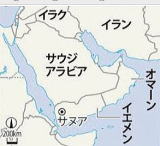 → → 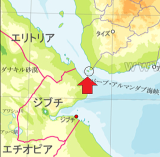
▲ペリム島(イギリスが貯炭場を置いた。現在イエメン領)
・対馬事件さなかの文久元年六月、英国公使オールコックは外務大臣ラッセル宛に、やはり「対馬を英国が支配すべきだ」と報告。
◆英国公使オールコックから外務大臣ラッセル宛報告書
予は露国が着手する数年前に、他の西欧強国が同島に先鞭を著けずして放置したるを奇異 に感ずるものである・・・略…露艦の不法を詰って退去を迫り、若し露艦がこれを拒む場合 は、英国自身がこれを占領すべきである。
としてさらに、そのやり方まで下記のように提議している。対馬は無人島ではない、れっきとした日本人が住む領土である。「その島を幕府が『放置した島』としているのは不思議だから次のようなやり方で幕府・日本からから取り上げたらいい」と書く。
その手段としては、日本政府に条約履行の保証と大阪・兵庫の開市開港とを強要し、これを容れざる時は、従 来の条約違反に対する賠償として割譲せしむべきである。
(大塚武松『幕末外交史の研究』宝文館・昭和27年)
「こちらの要求通りに大阪・兵庫の開港を受け入れなかった場合は条約違反だからとして、その賠償に対馬を取り上げたらいい」―こういう思考を持つ英公使オールコックの提案に乗って、幕府の老中たちが対馬への英艦派遣を承諾してしまったことは、きわどい措置であった。
条約違反を言うなら、そもそもこの事件の発端がイギリスの条約違反から始まっている。1859安政六年四月にイギリス軍艦アクチオン号、十一月英艦アクチオン号・ドーフ号、と二度にわたって対馬で不法に測量・上陸して白嶽に登るなどした、この条約違反の責任を取るのが英国が先ずなすべきことなのに、人に因縁をつけることが先になっている。当時の欧米先進国外交官は、この程度のヤクザまがいの外交を普通に行なっていたことがわかる。
・ Hodgson, the British Consul in Hakodate, wrote in his "Nagasaki Hakodate Diary" that "Tsushima should be under our control."
◆ Hodgson's "Nagasaki Hakodate Diary"
The essential point for us is, without doubt, to have Tsushima in our sights.
The island has a fine harbor with exits on both sides, useful for any warship,
wood and water, and the inhabitants who welcome us are a most hospitable
people, and serve as a very elegant and useful spring-bridge between the
icy Manchuria and the silk-producing regions of China.
Then, he wrote, "Our (Britain's) urgent task is to make Tsushima the island of Perim," likening Tsushima to the small British island of Perim at the outlet of the Red Sea to the Gulf of Aden, and insisting that it be placed under British control.
Perim Island (where the British had a coal
storage facility. It is now part of Yemen.)
・ In the midst of the Tsushima Incident, in June, 1861 or Bunkyu 1, the British Minister Allcock also reported to Foreign Secretary Russell that "Britain should control Tsushima."
◆ Report from British Minister Allcock to Foreign Secretary Russell: I find it strange that the other Western powers have left the island unattended
for several years before the Russians started work on it... (emission)
...We should blame the Russian ships for their illegality and force them
to leave. If the Russians refuse to leave, we should occupy Tsushima ourselves.
In doing so, and even how to do so, he proposes the following. Tsushima is not an uninhabited island, but a territory that is clearly inhabited by Japanese. It's strange that the Shogunate is treating it as a "neglected island," so it should be taken away from the Shogunate and Japan in the following manner..
As a means of doing so, we should force the Japanese government to guarantee the fulfillment of the treaty and open the cities of Osaka and Hyogo to the public, and if they do not agree, Japan should cede Tsushima to us as compensation for the violation of the previous treaty.
(“A Study of the Diplomatic History of the End of the Edo Period,” by Takematsu Otsuka, Hobunkan, 1952)
It was a risky move for Japan to agree to dispatch British ships to Tsushima on the suggestion of the British Minister Allcock, who thought, "If Japan does not accept the opening of the ports of Osaka and Hyogo as we demand, we can take Tsushima as compensation for the violation of the treaty."
If we talk about the violation of the treaty, this incident started from the violation of the treaty by the British, who illegally surveyed and landed on Tsushima twice, once by the British warship Acteon in April 1859, and again by the British warships Acteon and Dorf in November 1859, and climbed Shiratake. The first thing the British should have done was to take responsibility for this violation of the treaty, but they were more interested in blaming others first. It is clear that the diplomats of advanced Western countries at the time were conducting this level of yakuza-like diplomacy as a matter of course.
|
通説 3 「勝海舟が外交で退去させた」 「勝海舟が英艦を頼んで退去させた」は誤り
■勝海舟の虚言 「氷川清話」
*「氷川清話」は放談の一部だから対馬事件を語る部分は編者・出版社によって以下のように該当箇所の「表題」が異なります
勝海舟の「彼をもって彼を制す」講談社文庫
あるいは「外交の秘訣」幕末維新史料叢書2・人物往来社
あるいは「ロシアの侵略主義」角川文庫
…はいずれも 勝海舟の虚言
<Myth 3> "Kaishu Katsu evacuated the Russian ships through diplomacy"
and "Kaishu Katsu asked the British ships to evacuate the Russian
ships" are both incorrect.
■ The Falsehoods of Kaishu Katsu "Hikawa Seiwa": Errors in the common theories
* Since "Hikawa Seiwa" is a part of the discourse by Kaishu Katsu,
the part that talks about the Tsushima Incident differs depending on the
editor and the publisher as explained below. Kaishu Katsu's "Conquring
a man by using another man," Kodansha Bunko, "Secrets of Diplomacy,"
Bakumatsu Ishin Shiryo Sosho 2, Jinbutsu Oraisha and "The Aggression
of Russia," Kadokawa Bunko ... are all falsehoods of Kaishu Katsu.
|
・勝海舟の『氷川清話』に次のような対馬事件解決に関する談話がある。
◆勝海舟『氷川清話』
「さあここだ、…かういふ場合こそ、外交家の手腕を要するといふものだ。」
として懇意にしていた長崎に居た英国公使オールコックに内密に頼み込み、北京駐在の英国公使から直に露国公使(イグナチェフ)に掛合ってもらって、
「わけもなく露西亜をしてたうたう対馬を引き払わせてしまった…。これがいはゆる彼に由りて彼を制するといふものだ」(『氷川清話』)
念のため上記の勝海舟の話を確認しておくと
【1】(長崎にいた)英国公使オールコックから→(北京の)英国公使→(北京の)露国公使イグナチェフに伝えて退去させた、という外交だけで退去させたと語る話 である。
得意そうに語るこの談話が一部歴史家に信じられ、
次の歴史の史実
【2】英国公使の提案を安藤老中が承知したので英国軍艦が対馬へ行き退去勧告(ただしビリレフは退去を拒否)した史実
とくっつくけて、
【3】「勝海舟が英国軍艦を頼んでロシア艦を退去させた」
というごちゃまぜの話にまで発展して【1】も【3】も通説となっています。
・ There is a discourse on the resolution of the Tsushima Incident in "Hikawa Seiwa" by Kaishu Katsu as follows:
◆ Kaishu Katsu's "Hikawa Seiwa"
"Now here we are, and this is where a diplomat's skills come into
play."
With these words, Kaishu Katsu says that he secretly asked Allcock, the
British minister in Nagasaki, whom he had been close to, to contact the
Russian minister directly from the British minister stationed in Beijing.
And about this, Katsu said,
"For no reason at all, I made the Russians leave Tsushima very easily.... This is what is called conquring a man by using another man.” (Hikawa Seiwa)
To be sure, let me confirm the above story of Kaishu Katsu as follows:
[1] The story goes that Allcock, the British minister in Nagasaki, contacted the British minister in Beijing and had him negotiate with Ignatiev, the Russian minister in Beijing, and as a result, the Russian warships were evacuated from Tsushima, or in other words, they were evacuated through diplomacy alone.
Some historians believe this story that Kaishu Katsu tells so well, and
it has developed into a story that is mixed up with other historical fact,
and it has become a myth. In other words, the following historical fact
was attached to the story.
[2] Since Nobumasa Ando, a shogunate council member, accepted the British minister's proposal, the British warship went to Tsushima to advise the Russian warship to leave (but the Russian warship refused). As a result, it end up with a jumbled story that:
[3] "Kaishu Katsu successfully lobbied the British warship to evacuate the Russian warship."
勝海舟の虚言
・勝の言葉は以下のように史実に照らすと後世の虚言といわれても仕方がない。
1、勝海舟が頼んだとすると、それはいつか… 「 」内の赤字は勝海舟の言葉
「当時長崎に居た英国公使」オールコックは、二月三日に対馬事件が起きた2カ月半後の文久元年四月二十三日に長崎を発して下関まで歩き、下関~(船で)~兵庫、徒歩で東海道を経て五月二十七日に江戸に着いている。
したがって勝の働きかけはオールコックが長崎にいた四月二十三日以前でなければならない。「わけもなく対馬を引き払わせてしまった」なら、せいぜい2,3ヶ月で片がつきそうな話である。
しかし、七月九日安藤老中との会談でオールコックが英艦派遣を提案する以前(長崎滞在中)にオールコックがこの問題で動いた形跡はない。
また、もし勝海舟の言うとおりに四月中頃までにオールコック→北京の英国公使→北京の露国公使イグナチェフ と動いて「外交家の手腕で…わけもなく」解決していれば、4ヶ月も経過した七月九日に英国公使オールコックが改めて軍艦派遣という別の提案を幕府にする必要はあるまい。
2、勝海舟が「内密に頼んだ」…というが、内密では証明する必要がない・反論のしようもないから、語り手に都合のいい話法。
七月九日の江戸における英公使オールコックと安藤老中との会談には同席していないことを、まず確認しておく。この日の会談では、外国人との交渉では目付が同席する幕府の慣例にオールコックが抗議して、目付を退席させているくらいだから、一部にある「内密に屏風の裏に勝海舟がいた」などとする説も通らない。
歴史を語るのに「内密」や「極秘」を駆使して自説を都合よく展開させるのはうかつに信用できない。
3、解決の違い…史実では、英国軍艦のホープ中将が対馬で露艦艦長ビリレフに退去勧告をしている(ビリレフは退去しないが―)。
海舟の話【1】では、勝に内密に頼まれた英国公使オールコックが→北京の英国公使に話し→北京の露国公使イグナチェフに掛合って外交だけで―「わけもなく対馬を引き払わせてしまった」ことになっている。
これではオールコックが安藤老中に英艦派遣を提案して了解を得、対馬に派遣した史実と整合しない。
勝海舟の話のようにウラ外交だけで解決したなら、英艦派遣は必要がないからオールコック公使が安藤老中に提案するはずがない。
注:勝海舟が英国公使オールコックに頼んで軍艦を派遣してもらったとする説【3】もあるが、別の話を都合よくくっつけ、なんでも勝海舟の手柄にしたい、いいとこ取りの「勝海舟神話」の一つとみていい。
4、露国外務省は傍観者…既述のように今回の露艦の対馬侵航滞泊は露国海軍の独走で行なっていることで、基本的にロシア外務省は傍観者の立場だから、露国北京公使イグナチェフに掛合った程度で解決できた、というのは考えにくい。外務大臣ゴルチャコフはこの問題に露国北京公使イグナチェフを巻き込むことに(皇帝の前で)反対している。(反対した以上、外務大臣ゴルチャコフは公使イグナチェフや箱館の領事ゴシケビッチに対して対馬事件への介入をしないよう釘を差しているはずである)
◆海軍大臣コンスタンチンからリハチョフ提督宛書簡
外務大臣ゴルチャコフは、この問題を誰に任せてよいかはっきり判らないと言い、イグナチェフに任せることを欲しないと断固として言いました。この席で彼はイグナチェフをこの問題から解放するように私に願い、この問題を外交問題としてではなく、純粋に海軍の問題にする、それ故に問題をあなたに一任すると話を結びました。私(海軍大臣コンスタンチン)はもちろん、この展望を非常に喜び、ベターだとすぐに同意しました。
(岡山大学保田孝一編著『文久元年の対露外交とシーボルト』)
Falsehoods of Kaishu Katsu
・ In light of the following historical facts, it is no wonder that Katsu's words can be called lies that were added after the fact.
1. If Kaishu Katsu had asked for it, when would it have been.
(Red letters in quotation marks in the following sentences are Kaishu Katsu's words.)
Allcock, "the British minister in Nagasaki at the time," left Nagasaki on April 23, 1861, two and a half months after the
Tsushima Incident occurred on February 3, walked to Shimonoseki, then traveled
to Hyogo (by ship) , and walked along the Tokaido to arrive in Edo on May
27.
Therefore, Katsu's approach to Allcock must have been before April 23,
when Allcock was still in Nagasaki. If "Allcock easily made the Russian warships leave Tsushima," the matter would have been settled in a few months at most.
However, there is no evidence that Allcock acted on this issue before he proposed the dispatch of British ships at the meeting with Nobumasa Ando, a shogunate council member, on July 9 (during his stay in Nagasaki).
Also, if, as Kaishu Katsu says, in April, Allcock, the British minister in Beijing, and then Ignatiev, the Russian minister in Beijing, had worked together to solve the problem "with the skill of diplomats...very easily," there would be no need for Allcock, the British minister, to make another proposal to the Shogunate on July 9, five months later, to dispatch warships.
2. It is said that Kaishu Katsu "asked Allcock for it in secret," but this is a convenient story for Katsu because there is no need
for him to prove or now way for us to refute it.
First of all, Katsu was not present at the meeting between Allcock, the British Minister, and Nobumasa Ando, a shogunate council member, in Edo on July 9. At the meeting, Allcock protested against the shogunate's custom of having a chaperon present during negotiations with foreigners, and even had the chaperon leave the room. Therefore, the theory that "Kaishu Katsu was secretly behind the folding screen" does not hold water.
We should not trust people who use "secrecy" and "top secret" to conveniently develop their own theories about history.
3. Differences in resolution... In historical fact, Lieutenant Commander Hope of a British warship advised Captain Birilev of the Russian warship to leave Tsushima (but Birilev did not leave).
In Kaishu's story (mentioned above in [3] ), British Minister Allcock,
who was secretly asked by Katsu, talked to the British Minister in Beijing,
then talked to Russian Minister Ignatiev in Beijing, and by diplomacy alone,
"made the Russina warship leave Tsushima very easily."
This is inconsistent with the historical fact that Allcock proposed the dispatch of British ships to Nobumasa Ando, a shogunate council member, received Ando's approval, and dispatched them to Tsushima. Also, if the issue had been resolved through diplomacy alone, as in the story of Kaishu Katsu, there would have been no need to dispatch British ships, and therefore Allcock would not have proposed it to Nobumasa Ando.
Note: There is also a theory [3] that Katsu Kaishu asked British Minister
Allcock to dispatch warships, but it can be regarded as one of the "Katsu
Kaishu falsehoods" that conveniently attach other stories and make
Kaishu Katsu take credit for everything.
4. The Russian Foreign Ministry was a bystander: As already mentioned, the Russian navy was acting on its own to keep the Russian ships from invading Tsushima, and the Russian Foreign Ministry was basically in the position of a bystander. Therefore, it is difficult to imagine that the problem could have been solved by simply talking to Ignatiev, the Russian minister in Beijing. Foreign Minister Gorchakov was opposed (in front of the Czar) to involving Ignatiev, the Russian Minister to Beijing, in this issue. (Since he objected to it, he must have nailed the Minister Ignatiev and the consul in Hakodate, Gosikevich, not to intervene in the Tsushima affair.)
◆ Letter from Konstantin, Minister of the Navy, to Admiral Likhachev
Foreign Minister Gorchakov said that he did not know exactly whom to entrust with this problem and was adamant that he did not want Ignatiev to handle it. At this meeting he asked me to release Ignatiev from the problem and concluded that the problem would not be a diplomatic one, but a purely naval one, and that he would therefore leave the matter to you. I was of course very pleased with this prospect and immediately agreed that it was a good idea.
(“Diplomacy with Russia in the First Year of Bunkyu or 1861 and Siebold,” edited by Koichi Yasuda, Okayama University)
|
勝海舟虚言を補強する説
ところがこれに関して近年、上記の「勝海舟の虚言」を補強するかのように
「イグナチェフは全権公使で軍事指揮権を有している。リハチョフ提督に(退去)命令を出せる」(上垣内憲一『勝海舟と幕末外交』 中公新書2014年)
と勝海舟→英国公使オールコック→北京の英国公使→北京の露国公使イグナチェフが退去を命じた、を補強する説が出た。
One theory that reinforces the falsehoods of Kaishu Katsu
In recent years, the following theory has emerged, as if to reinforce the
falsehoods of Kaishu Katsu:
"Ignatiev is a minister with plenipotentiary powers and has military command authority. He can order Admiral Likhachev to leave."
(“Kaishu Katsu and the diplomacy at the end of the Tokugawa shogunate” by Ken’ichi Kamigaito, Chuko Shinsho, 2014)
|
しかし、提督リハチョフを中国海域連合艦隊司令官に任命した時の訓令書には
「ペチェリスキー湾(渤海湾)に集結し我が国の在北京公使N・イグナチェフ陸軍少将の配下に入ることになっている艦隊の指揮を貴下に委ねる」「本訓令からは予測できず緊急の決断を要するような場合には、なんら遠慮することなく、貴下は最良と認める行動を躊躇せず選択すること」
(ウラジミル・S・ソボレフ「露日関係史料としてのリハチョフの中国艦隊の文書」訓令書図版もあり)
とリハチョフに全権を付与する指示が出ているから、上記(上垣内憲一『勝海舟と幕末外交』)の話は通らない。
しかも、基本的に在北京ロシア公使イグナチェフは英国が対馬を狙っていると警戒して提督リハチョフに報告した当事者であって、この事件そのものがイグナチェフの報告から始まっているとも言えるのに、勝海舟の言うように英国公使が言うからと簡単に退去に同意して動いたとしたら、イグナチェフはとんでもなく無節操・無責任な「マッチポンプ男」となってしまう。ありえない話。
5、海軍大臣からの命令系統…対馬藩士や小栗上野介、英艦のホープ中将が抗議勧告してもビリレフがすぐに退去しなかったのは、上官リハチョフ提督からの撤退命令がなければ動けない軍隊組織末端の立場だからである。露艦の艦長ビリレフが「英艦が来たから退去しました」とスゴスゴと戻ったとしたら、命令違反で軍法会議にかけられるだろう。このことを認識せず
従来の歴史家が「小栗上野介は成果を挙げられず江戸に戻った」としてきたのも、不定見としかいえない。
6、「後門の狼」に依頼する危険な越権行為…オールコック公使は既述の通り「ロシアの代わりに英国が対馬を占領すべき」としてその方法までも提案している、まさに小栗や村垣が言う「後門の狼」である。
もし勝が本当に勝手に、「懇意にしていた」危険な人物オールコックに「内密に」頼み込んだとしたら、ホラ話ではすまない軽率かつ危険な越権行為であった。
7、リハチョフ提督から海軍大臣コンスタンチンあての報告書…この年12月(8月に退去した後)のリハチョフ提督から海軍大臣コンスタンチン宛の報告書には
「ロシア海軍と対馬藩主との私的契約で進めるべき今回の交渉が、ロシア政府が望んでいなかった外交的土壌に移った…ので、支障が生じてポサドニク艦を引き揚げさせた。」
…としている。
この報告書には勝海舟がいうような在日英公使オールコックや在北京露公使イグナチェフの名前も介入も一切出てこない。
勝海舟は後世このようなロシア側の公文書が出てくることは予想していなかったろうから、生きていれば慌てたことだろう。「ホラを言うんじゃなかった…」と。
However, when Admiral Likhachev was appointed as the commander of the Combined Fleet in Chinese waters, the following instructions were issued to give him full authority.
"I entrust you with the command of the fleet which is to be assembled in Pechersky Bay (Bohai Sea or Bay) and which will be under the command of our Minister in Beijing, Army Major General N. Ignatiev." "In case of urgent decisions which cannot be foreseen from this instruction, you should not hesitate to choose the best course of action."
(“Documents of Likhachev's Chinese Fleet as Historical Documents on Russo-Japanese Relations” by Vladimir S. Sobolev," with illustrations of the directive)
Therefore, the above (“Kaishu Katsu and the diplomacy at the end of the Tokugawa shogunate” by Ken’ichi Kamigaito) does not hold water.
Moreover, Ignatiev, the Russian Minister in Beijing, was basically the one who reported to Admiral Likhachev that the British was targeting Tsushima, and it can be said that this incident itself started from Ignatiev's report. And yet, if Ignatiev had simply agreed to leave because the British minister said so, as Katsu Kaishu said, he would have been an incredibly unscrupulous "person to stir up trouble in order to gain the credit for solving it." It's an impossible story.
5. Chain of command from the Minister of the Navy... The reason why Birilev, the captain of the Russian ship, did not leave immediately even after the Tsushima clan members, Kozukenosuke Oguri, and Lieutenant General Hope of the British ship advised him to leave was because he was at the end of the military organization where he could not move without an order from his superior Admiral Likhachev to withdraw. If Birilev had left, saying "I left because the British ship was coming," he would have been court-martialed for violating orders. Without recognizing this fact, conventional historians have assumed that "Kozukenosuke Oguri returned to Edo without achieving anything," which can only be regarded as an indeterminate view.
6. Kaishu Katsu's request to the "wolf at the back gate" was a dangerous overstepping of his authority:
As already mentioned, Minister Allcock even proposed the method of occupying Tsushima, saying that "Britain should occupy Tsushima before Russia does." Therefore, if Katsu really took the liberty of asking the dangerous Allcock, whom he was "close to," "in confidence," it would not have been just a hoax, but a rash and dangerous overreach.
7. Report from Admiral Likhachev to Navy Minister Konstantin: In December of the same year (after the Russian Warship's departure in August), Admiral Likhachev wrote to Navy Minister Konstantin as follows:
"The negotiations, which should have proceeded under a private contract between the Russian Navy and the Lord of Tsushima, shifted to diplomatic soil, which the Russian government did not want...so we had the Posadnik pulled out of Tsushima due to the hindrance."
....
This report does not mention the names or interventions of Allcock, the British Minister in Japan, or Ignatiev, the Russian Minister in Beijing, as Katsu Kaishu claims.
Kaishu Katsu would not have expected such official documents from the Russian side to appear later in his life, and if he were still alive, he would have panicked and said, "I shouldn't have said that."
|
通説 4:「小栗は対馬事件の経験から造船所建設を考えた」は誤り
<Myth 4> "Oguri thought about building a shipyard based on his
experience of the Tsushima Incident" is incorrect.
|
・1860万延元年渡米した遣米使節一行は、パナマからの到着時に上陸したワシントン海軍造船所の見学を強く申し入れて、四月四日(1860年6月9日)再度訪れた。小栗忠順は、蒸気機関を原動力として蒸気機関そのもの・大砲・砲弾・ライフル銃・などの軍事品の他に、鍋・釜・スプー・ナイフ・フォーク・皿・ドアノブ・ロープ・帆布などの民生品まで造り、そして「船も」造る総合工場としての造船所の機能を見抜き、日本の近代化はこのような造船所の建設でスタートが切れる、と確信した。軍艦製造だけではなく日本全体の近代化の端緒にしたいという話である。
参照:ワシントン海軍造船所
*明治以来、遣米使節の業績は「勝海舟・咸臨丸」で隠されてきたので、遣米使節がワシントン海軍造船所を見学している大事な意味を見落としている歴史家が多い。
The Japanese delegation that came to the U.S. in the year 1860, strongly
requested to visit the Washington Naval Shipyard, where they had landed
upon their arrival from Panama, and visited again on the fourth day of
April (June 9, 1860). There, Tadamasa Oguri discovered the shipyard's function
as a comprehensive factory that produced not only military items such as
steam engines, cannons, shells, and rifles, but also civilian items such
as pots, kettles, spoons, knives, forks, plates, doorknobs, ropes, canvas,
and "ships" as well. He was convinced that Japan's modernization
could start with the construction of such a shipyard.
Reference: Washington Naval Shipyard
Since the Meiji era, the achievements of the 1980 Japanese envoys to the
U.S. have been hidden behind the "Kaishu Katsu and the Kanrin Maru,"
and therefore many history buffs have overlooked the important significance of the experience of the envoy's visit to the
U.S.
|
◆詳しくは、小栗上野介顕彰会機関誌『たつなみ』第38~41号に掲載の村上泰賢「対馬事件の史跡を訪ねる」を御覧ください。
*訂正:本ページの趣意と合致しない『たつなみ』38号の小見出し、「英艦の圧力で露艦は退去」は、調査不足の時点で通説のままのものでした。「露艦退去」と訂正します。
◆ For more information, please see Taiken Murakami's "Visiting the Historical Sites of the Tsushima Incident," which appeared in the journal of the Society Honoring Kozukenosuke Oguri,"Tatsunami" No. 38-41.
* Correction: The sub-heading in "Tatsunami" No. 38, which does not correspond to the purpose of this page, "Russian ships retreat under pressure from British ships," was a myth at the time of insufficient research. It has been corrected to read "Retreat of the Russian ships."
|
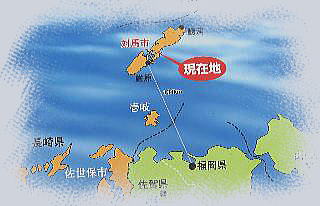



 →
→ 
